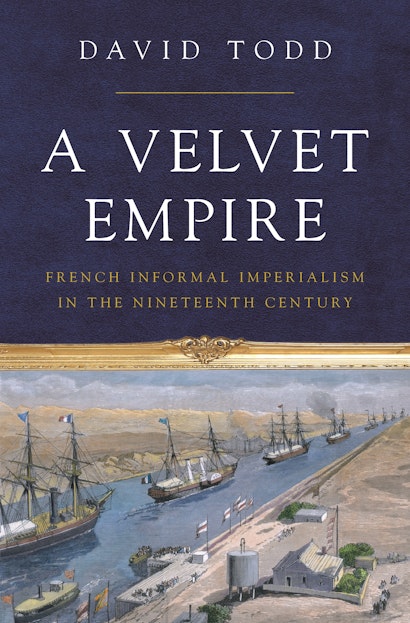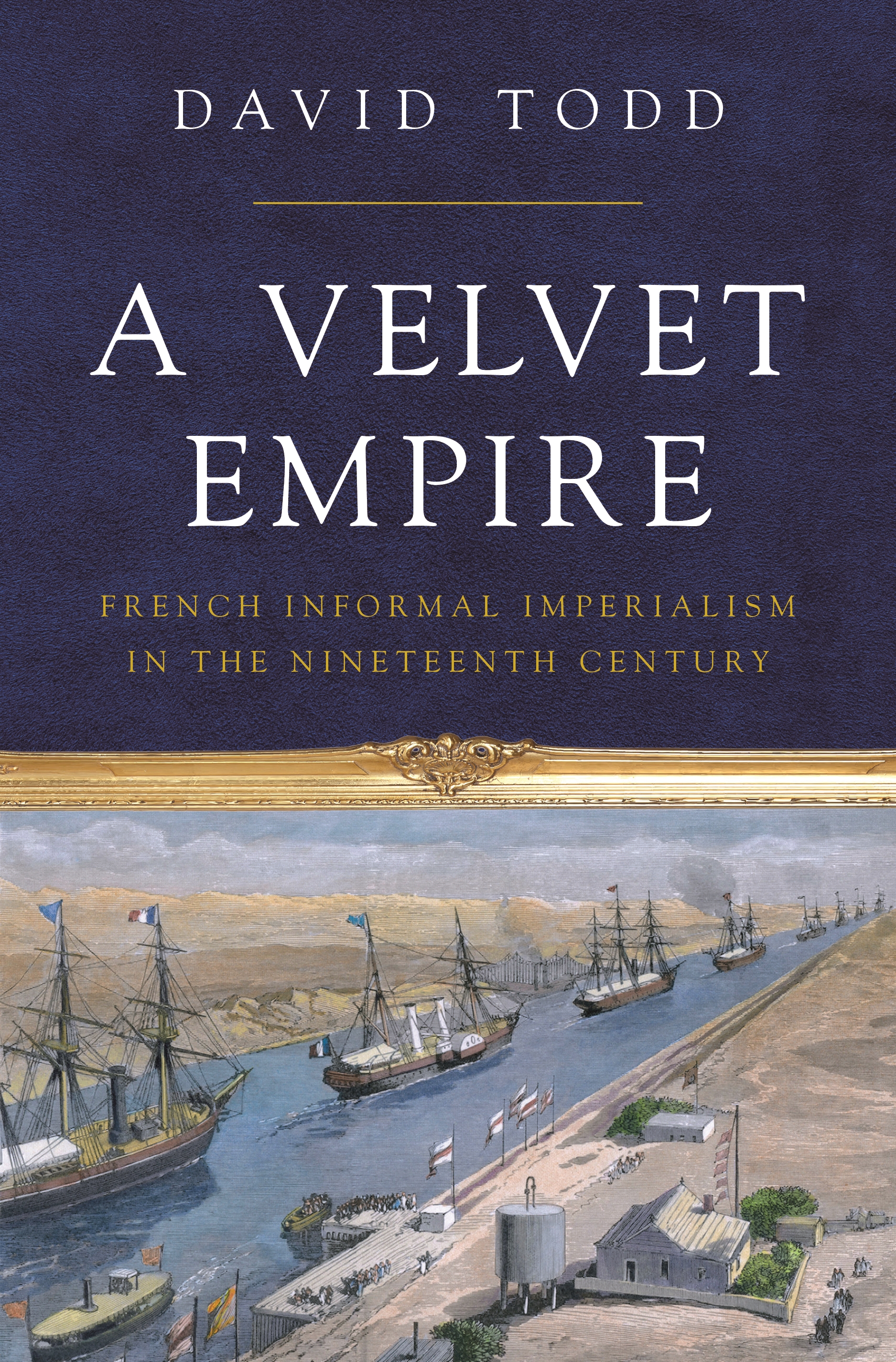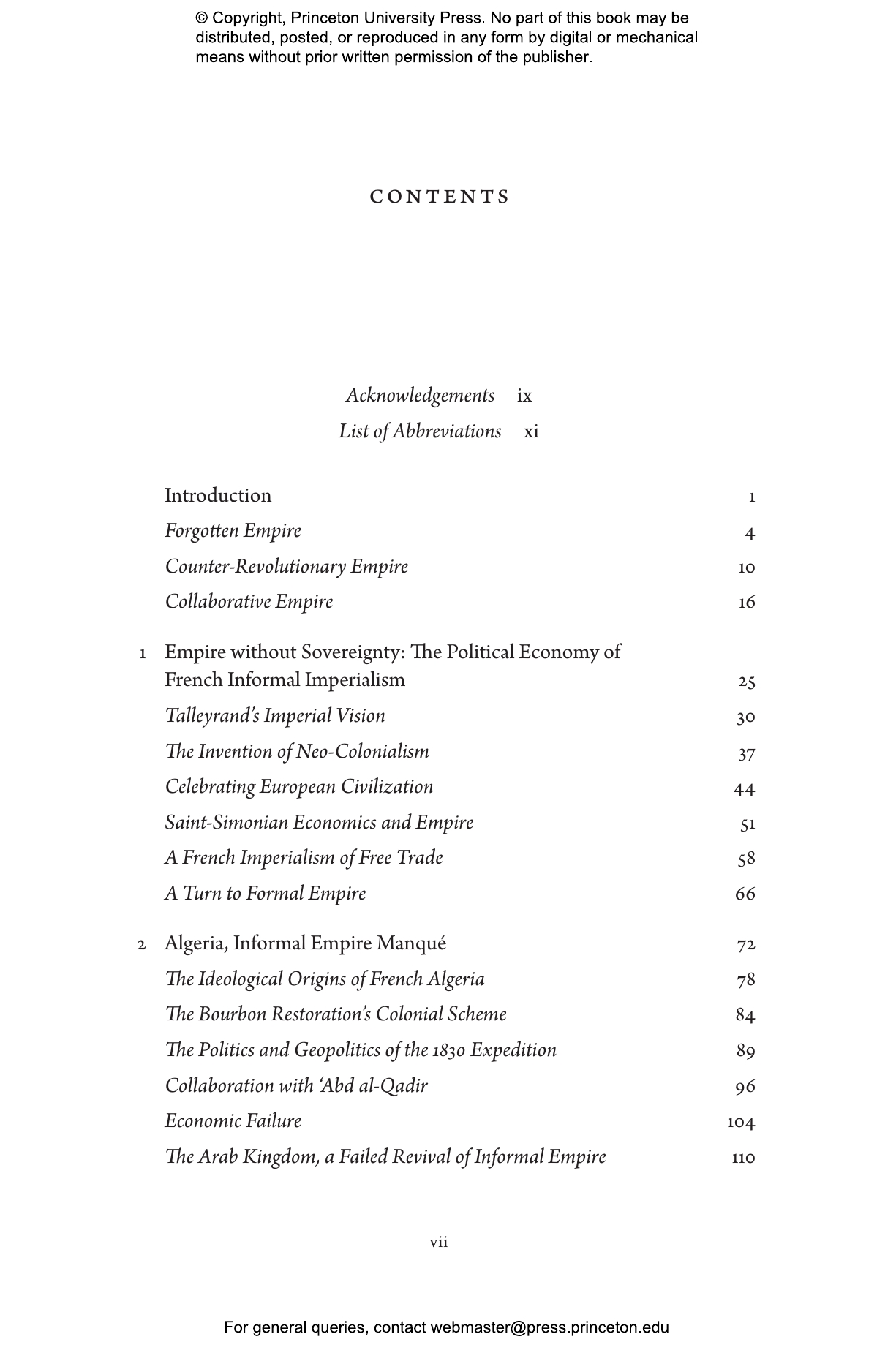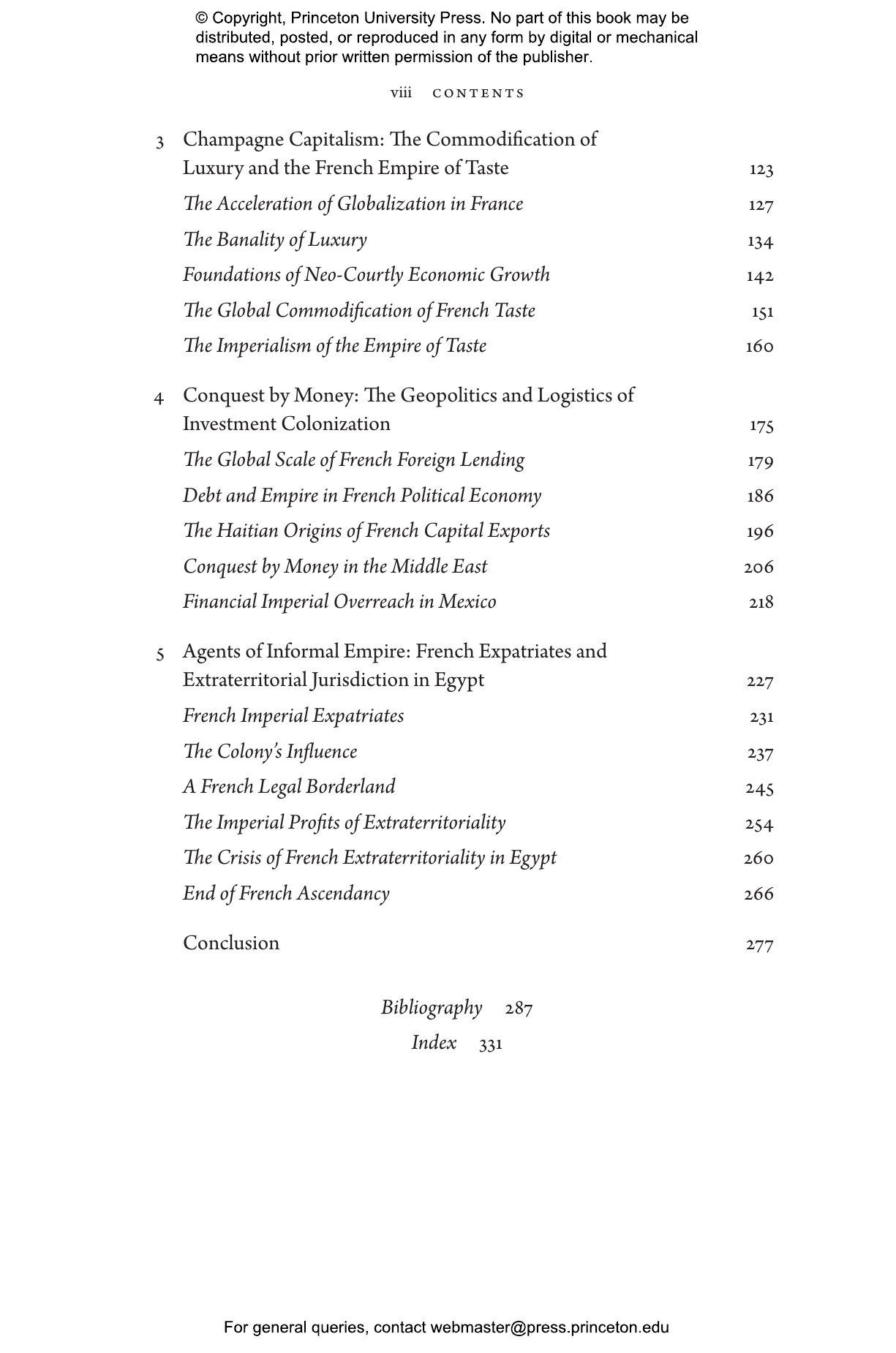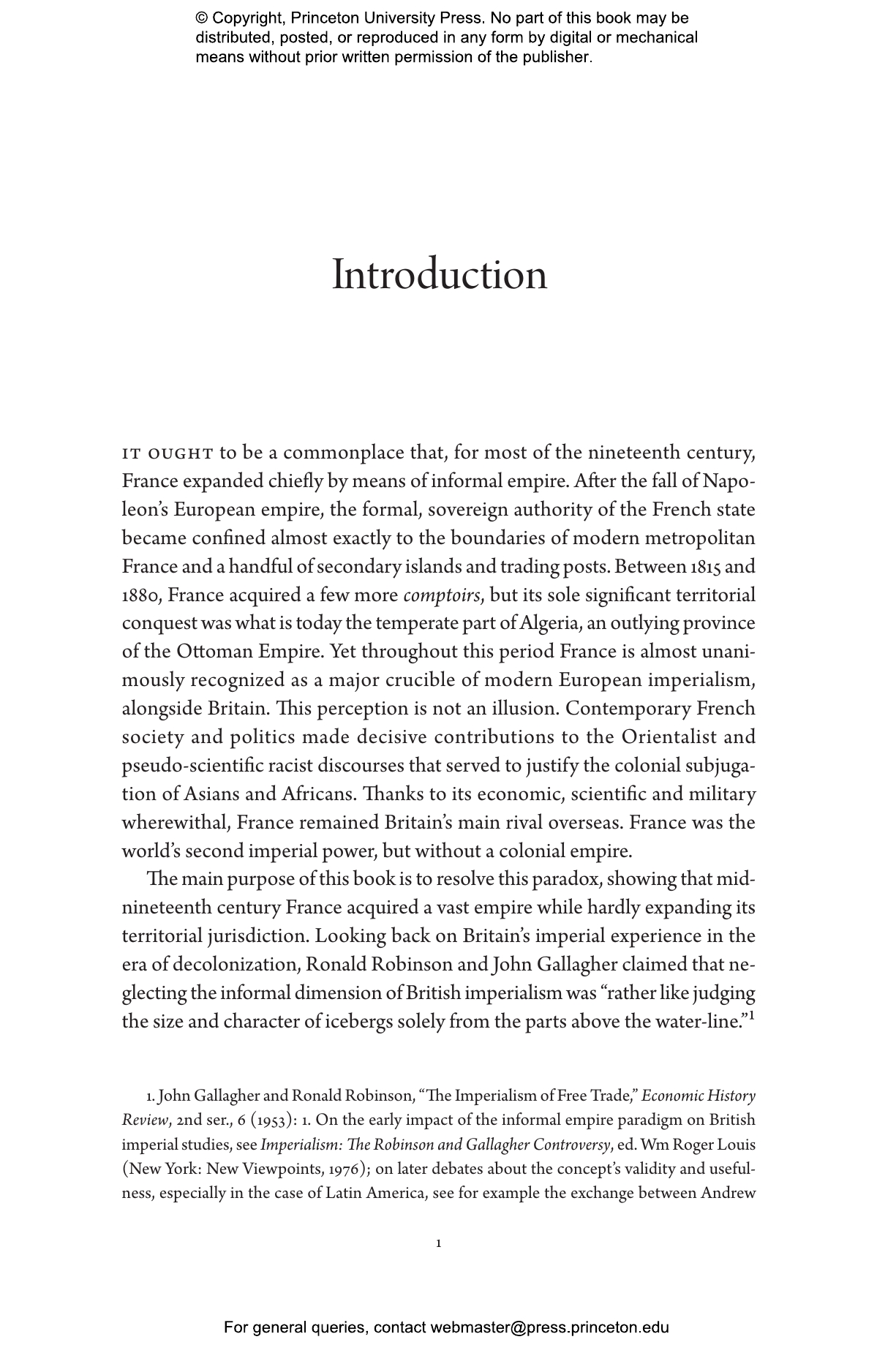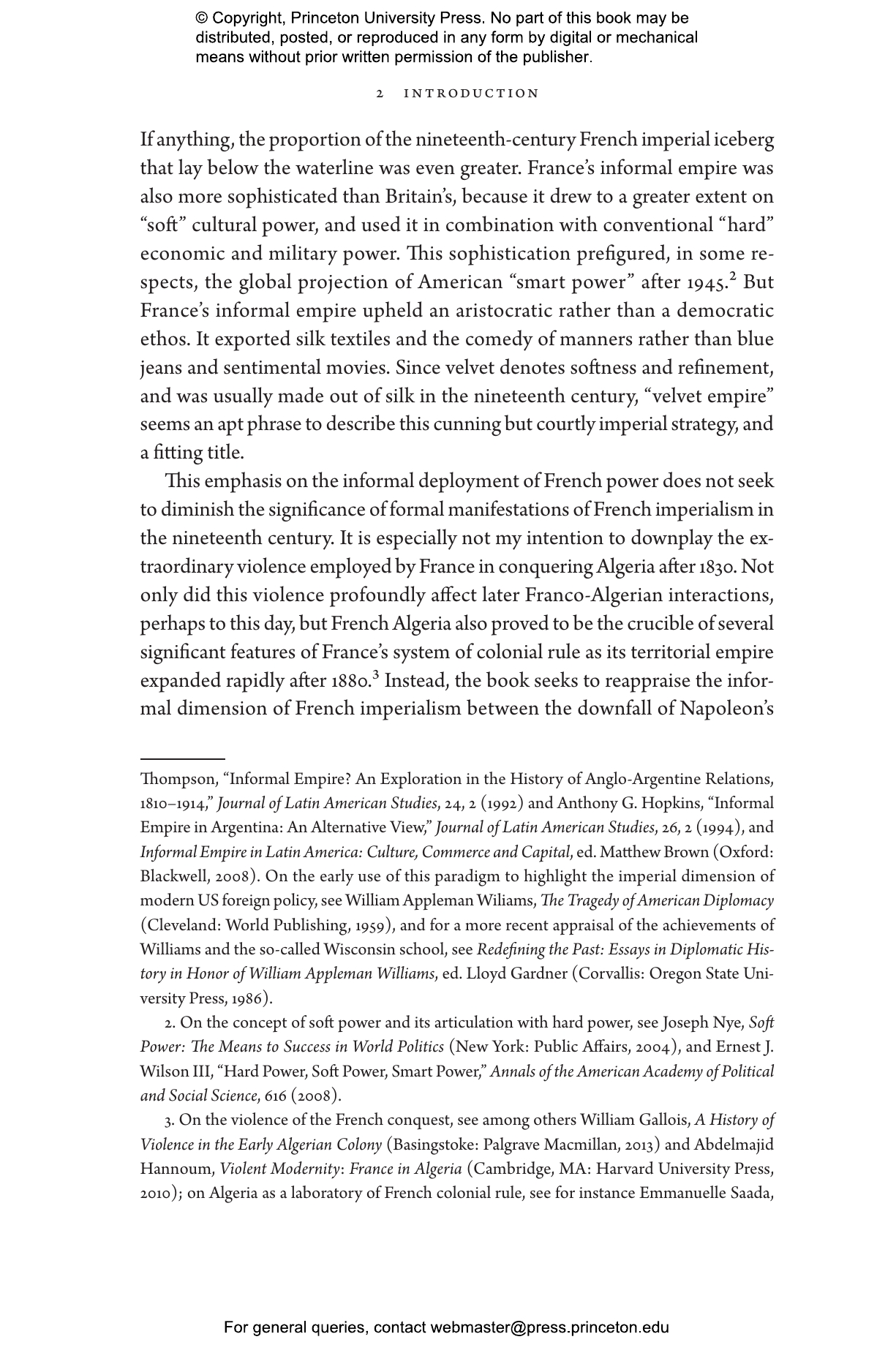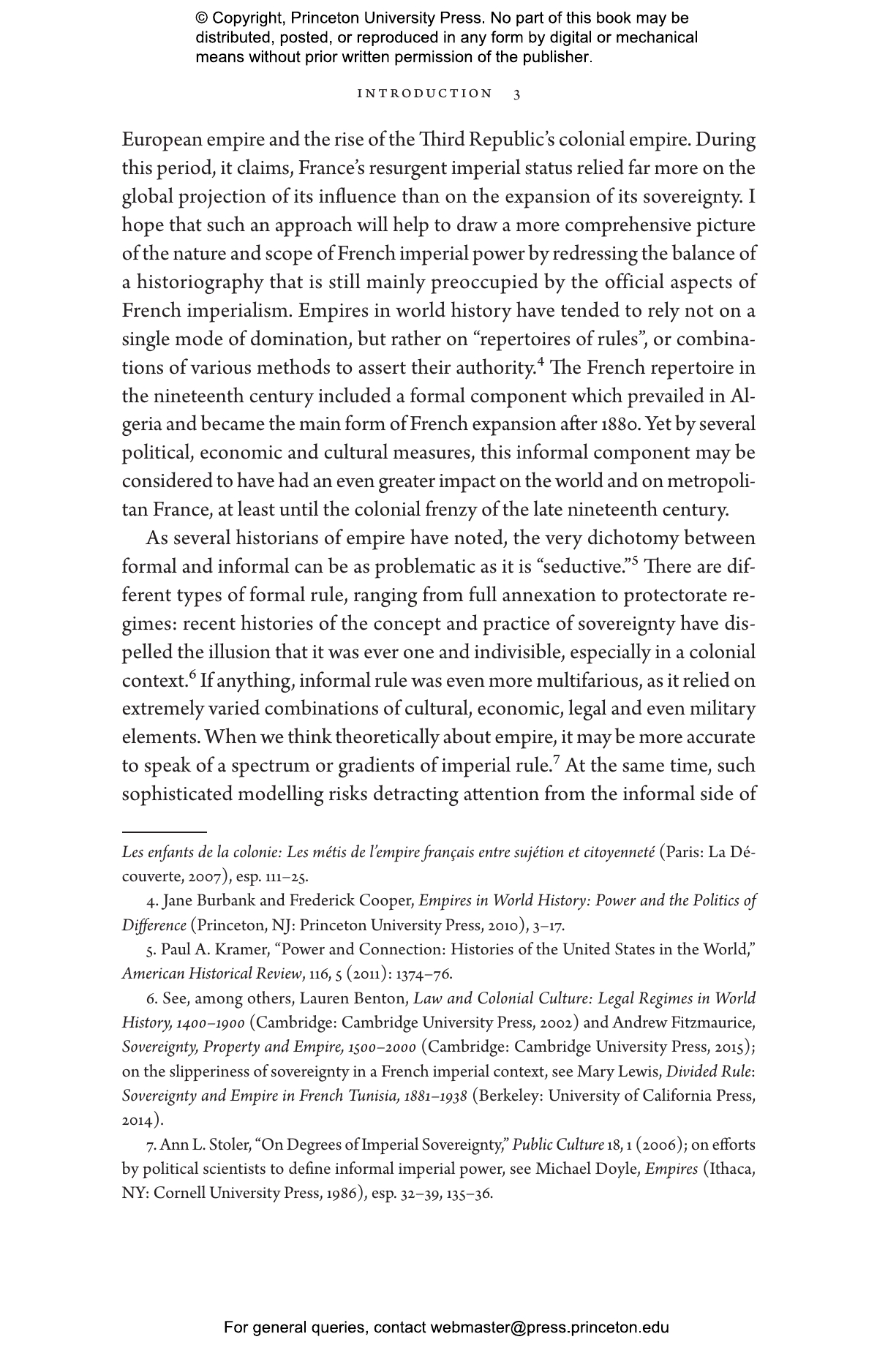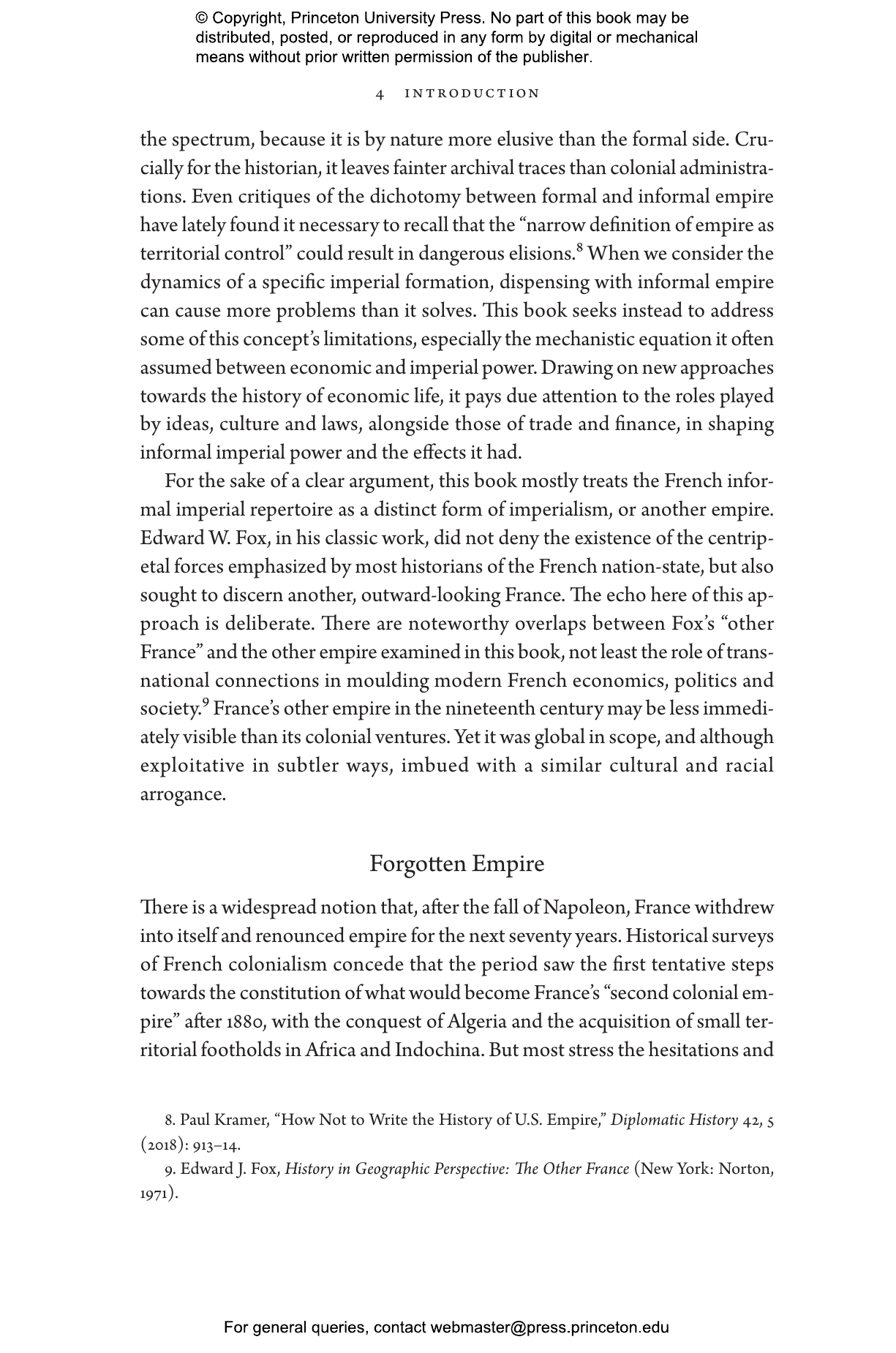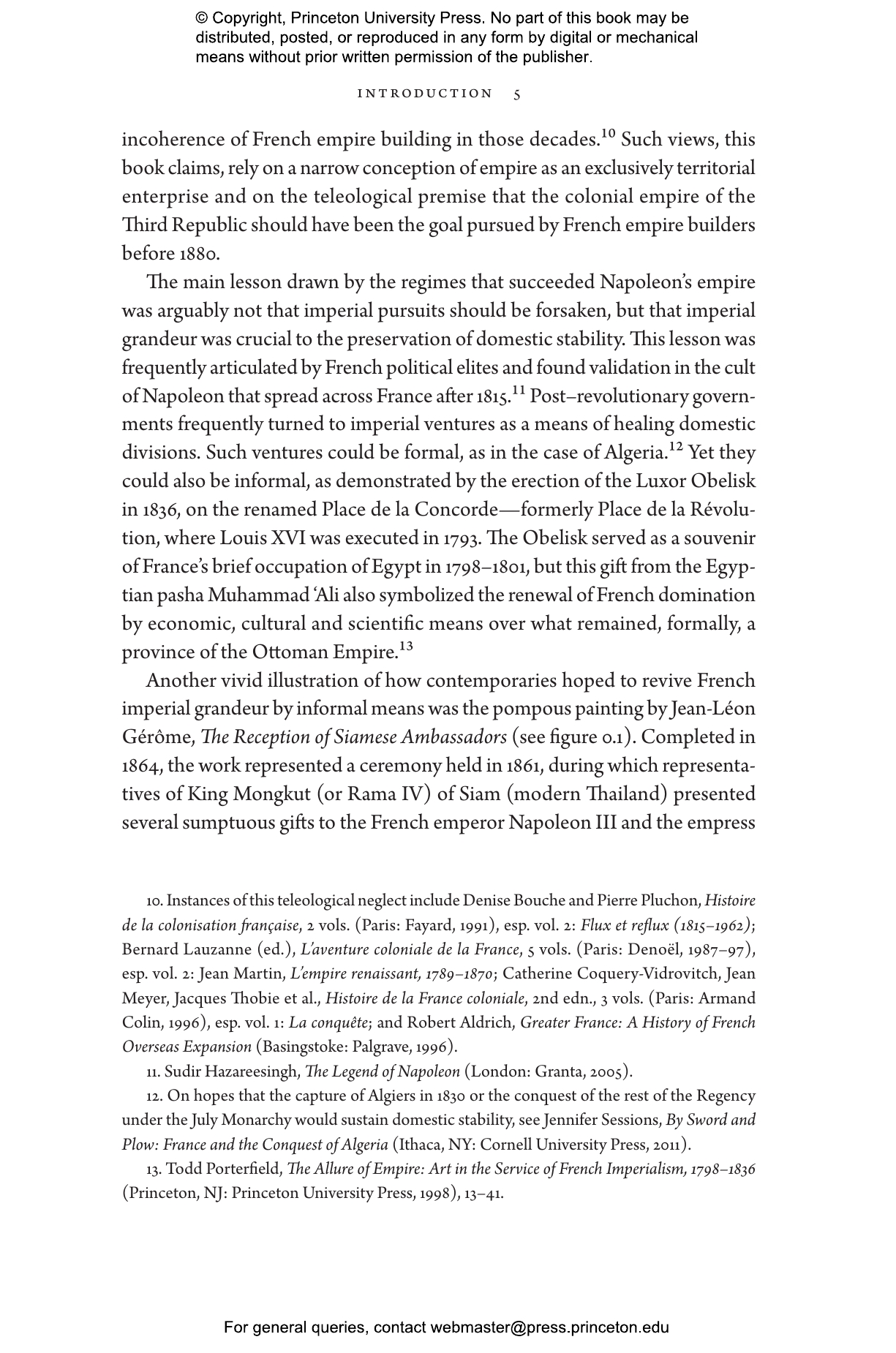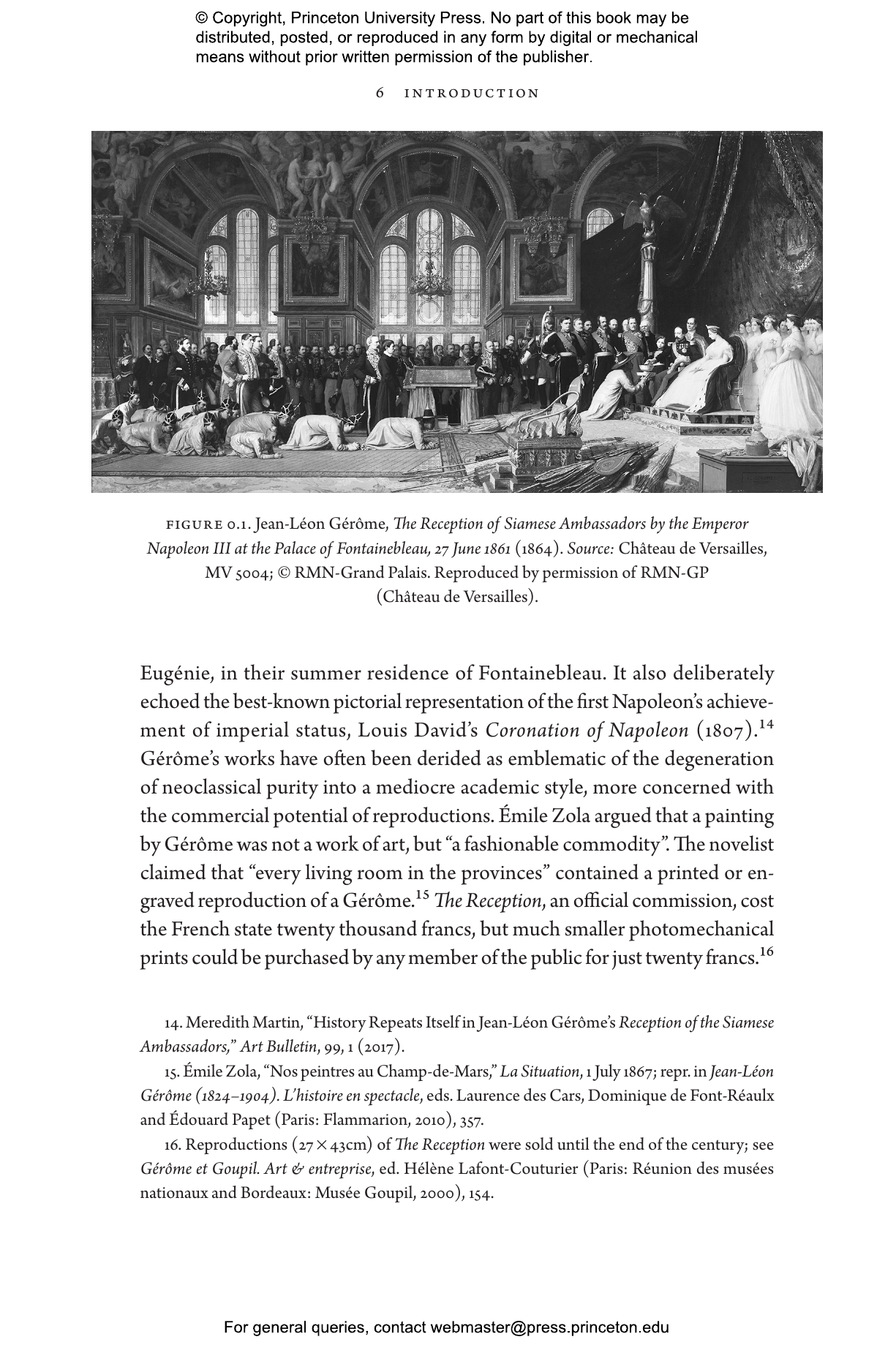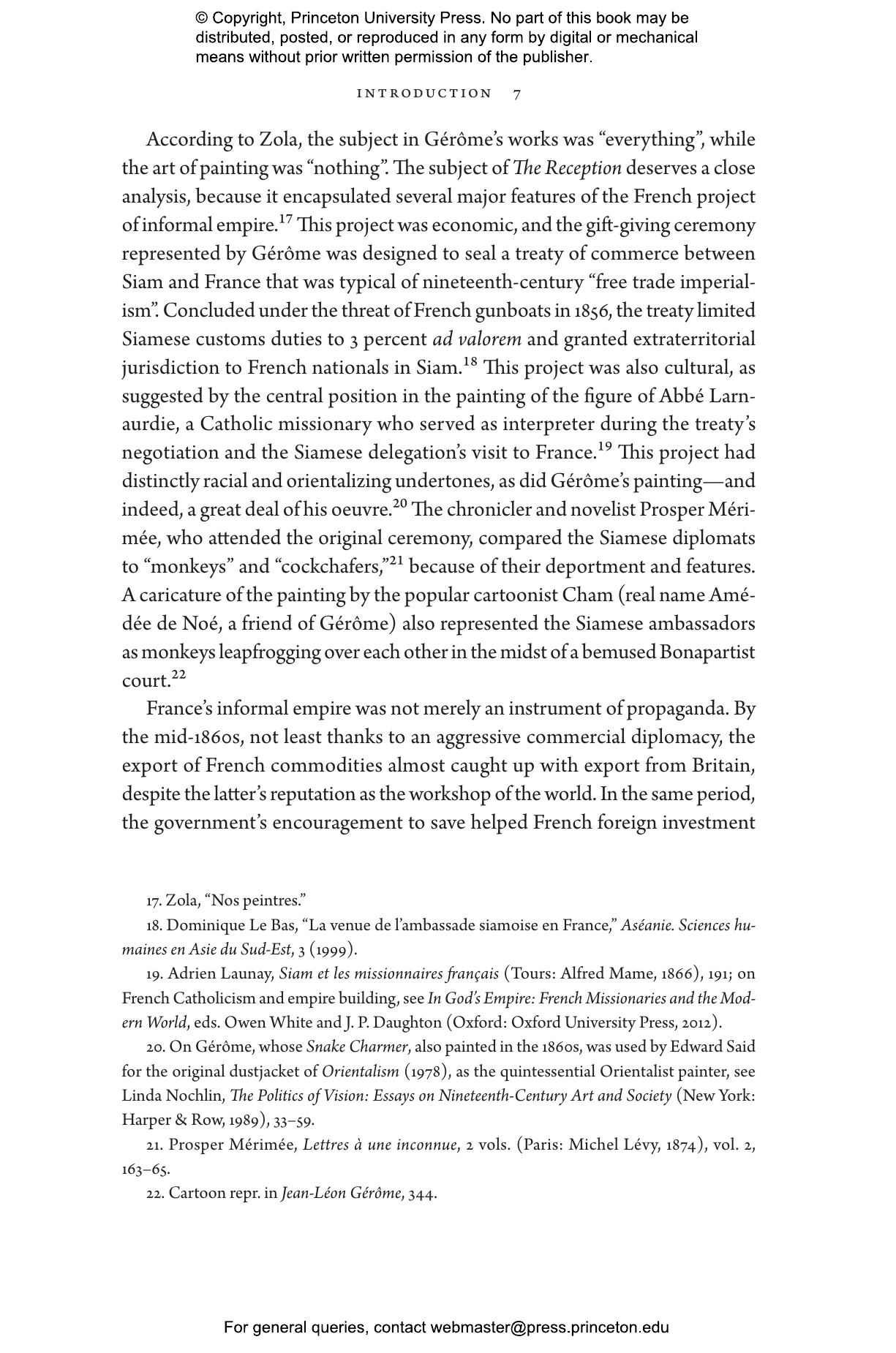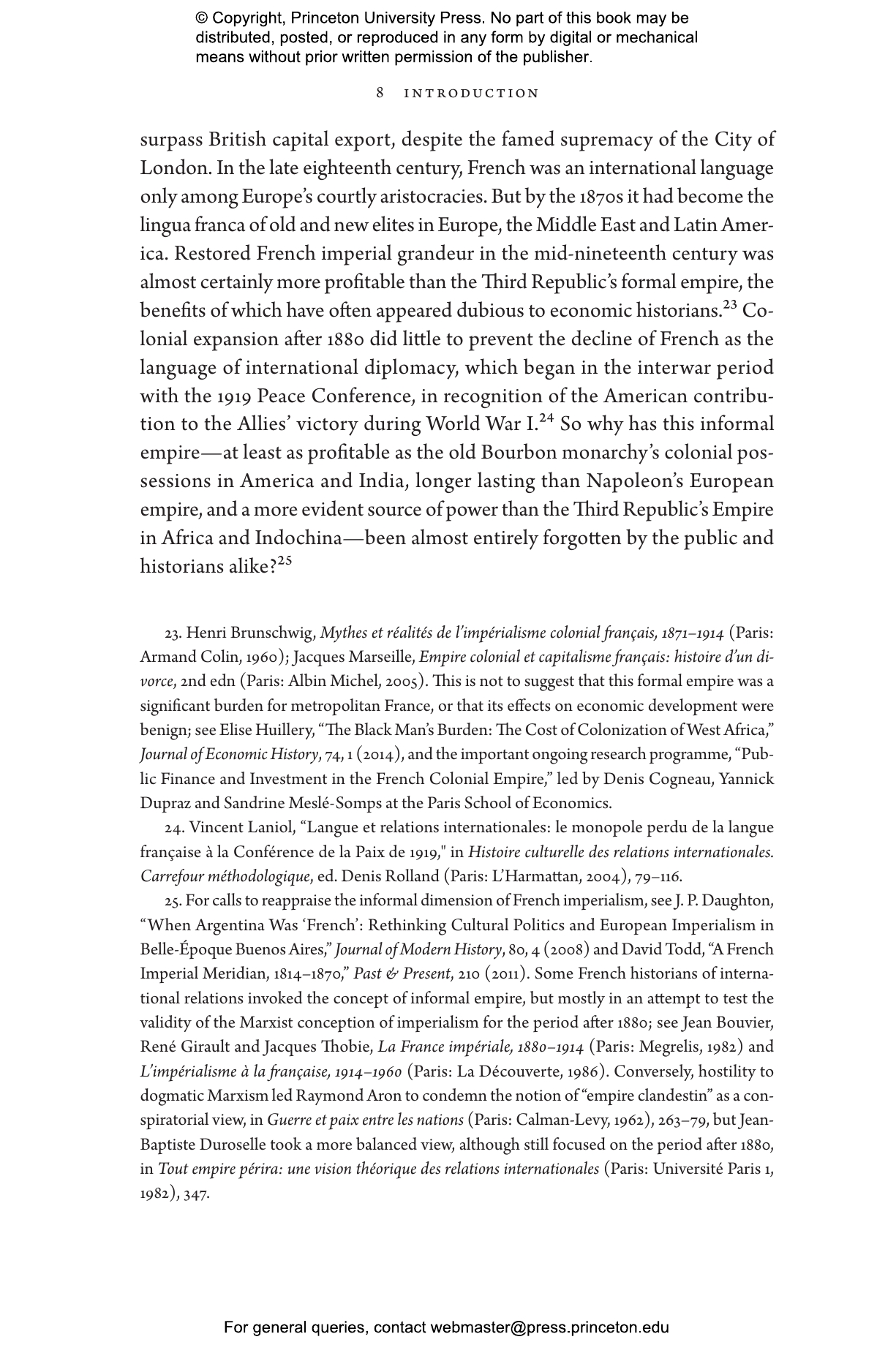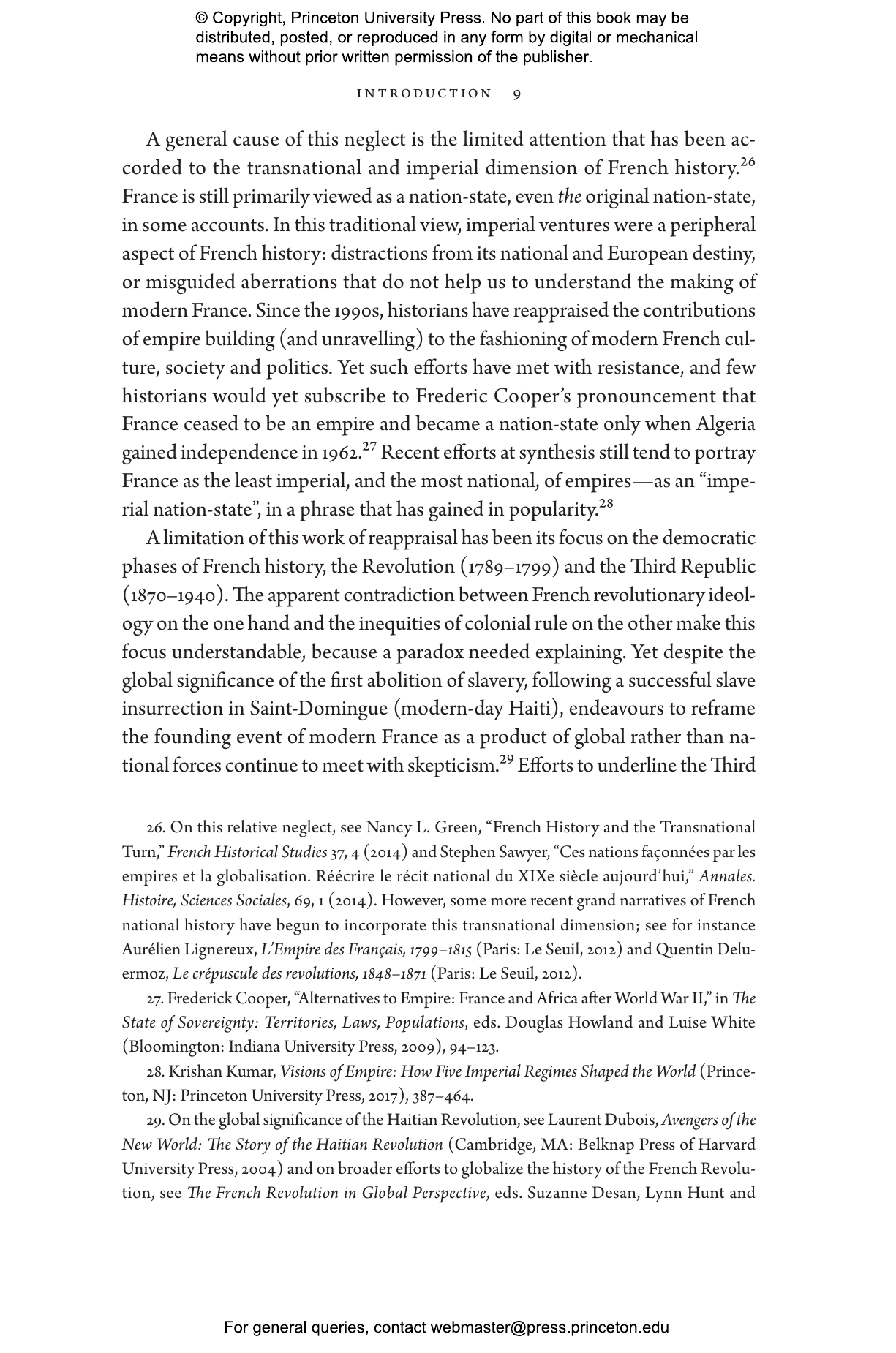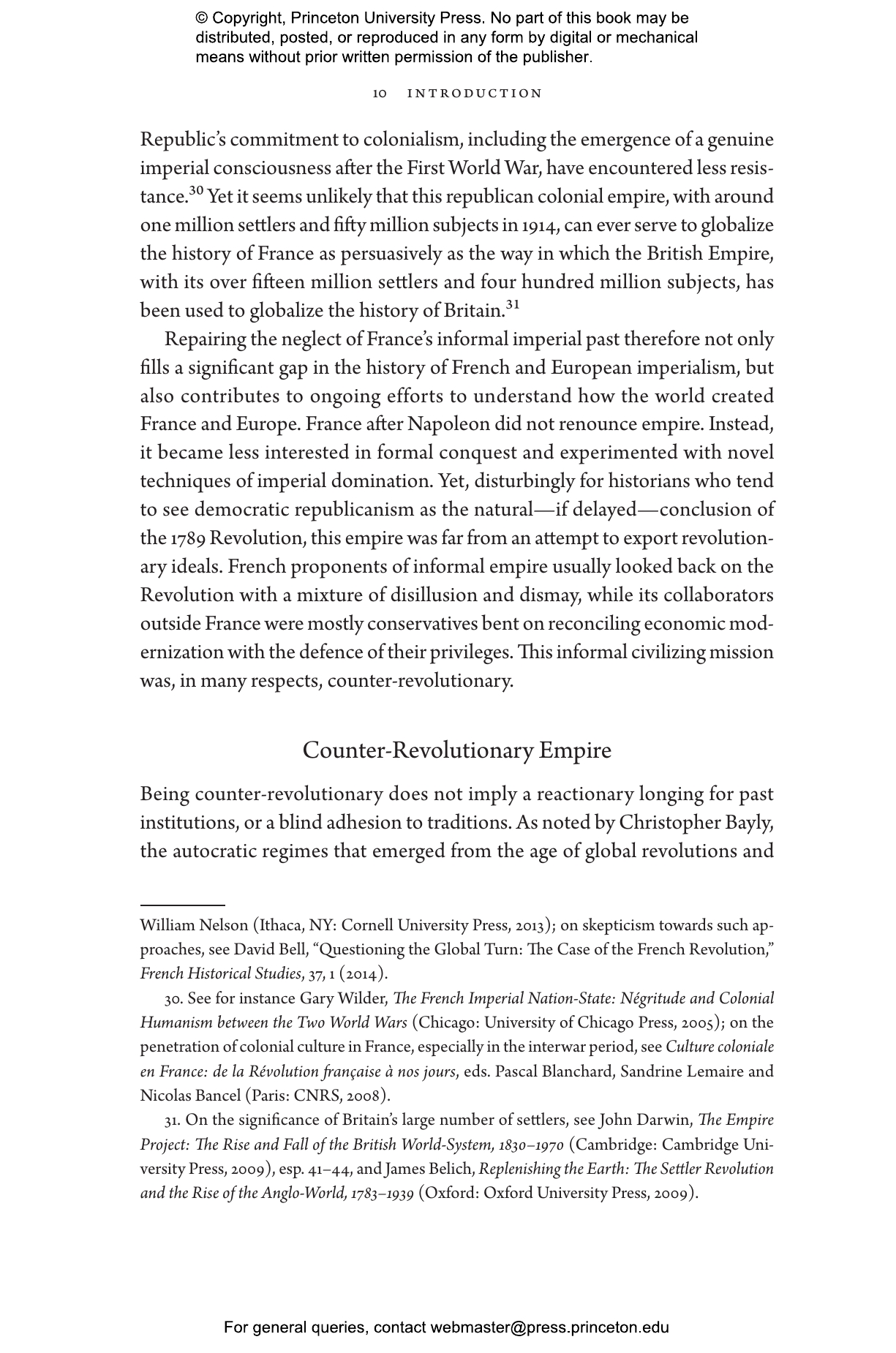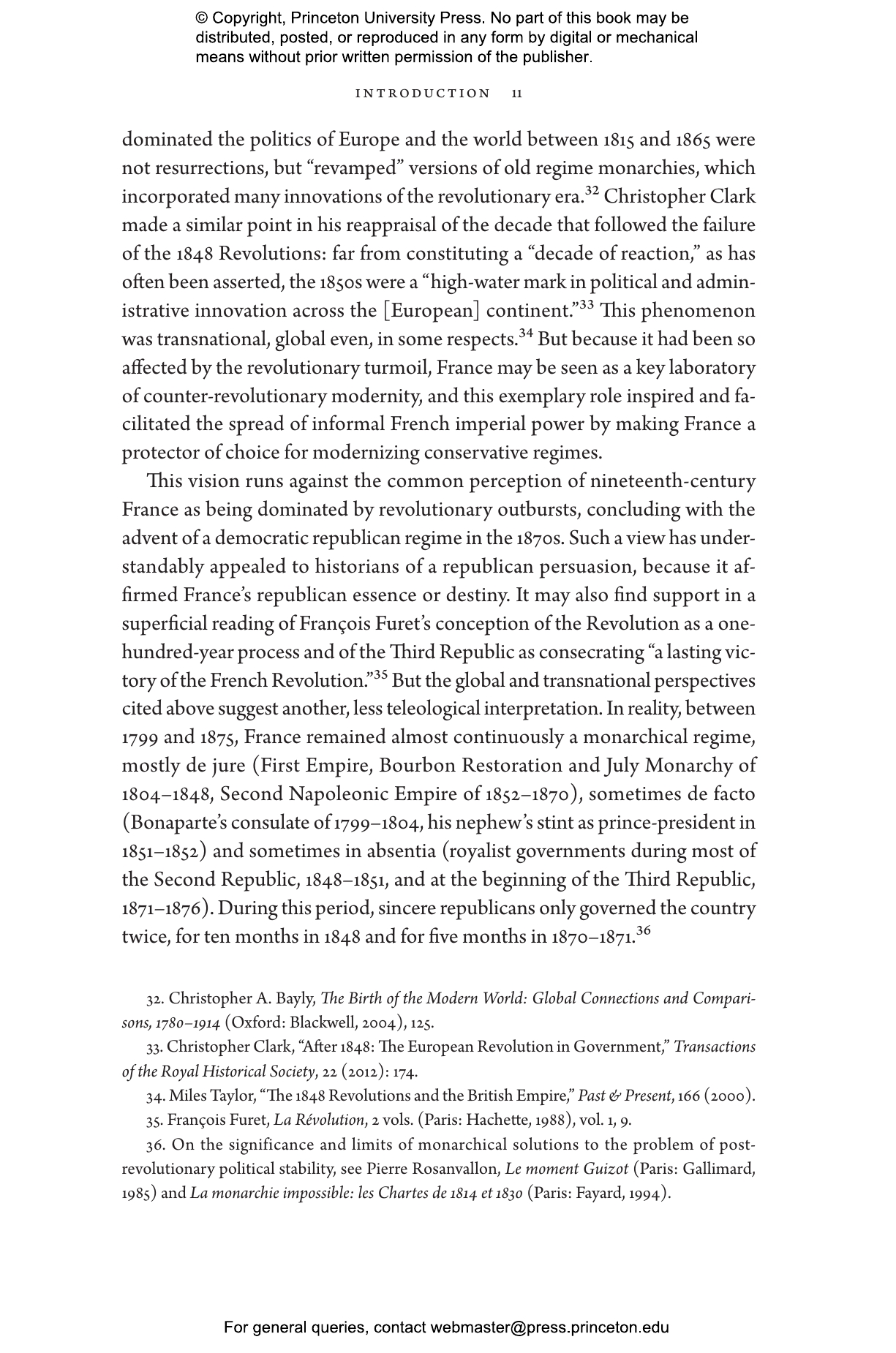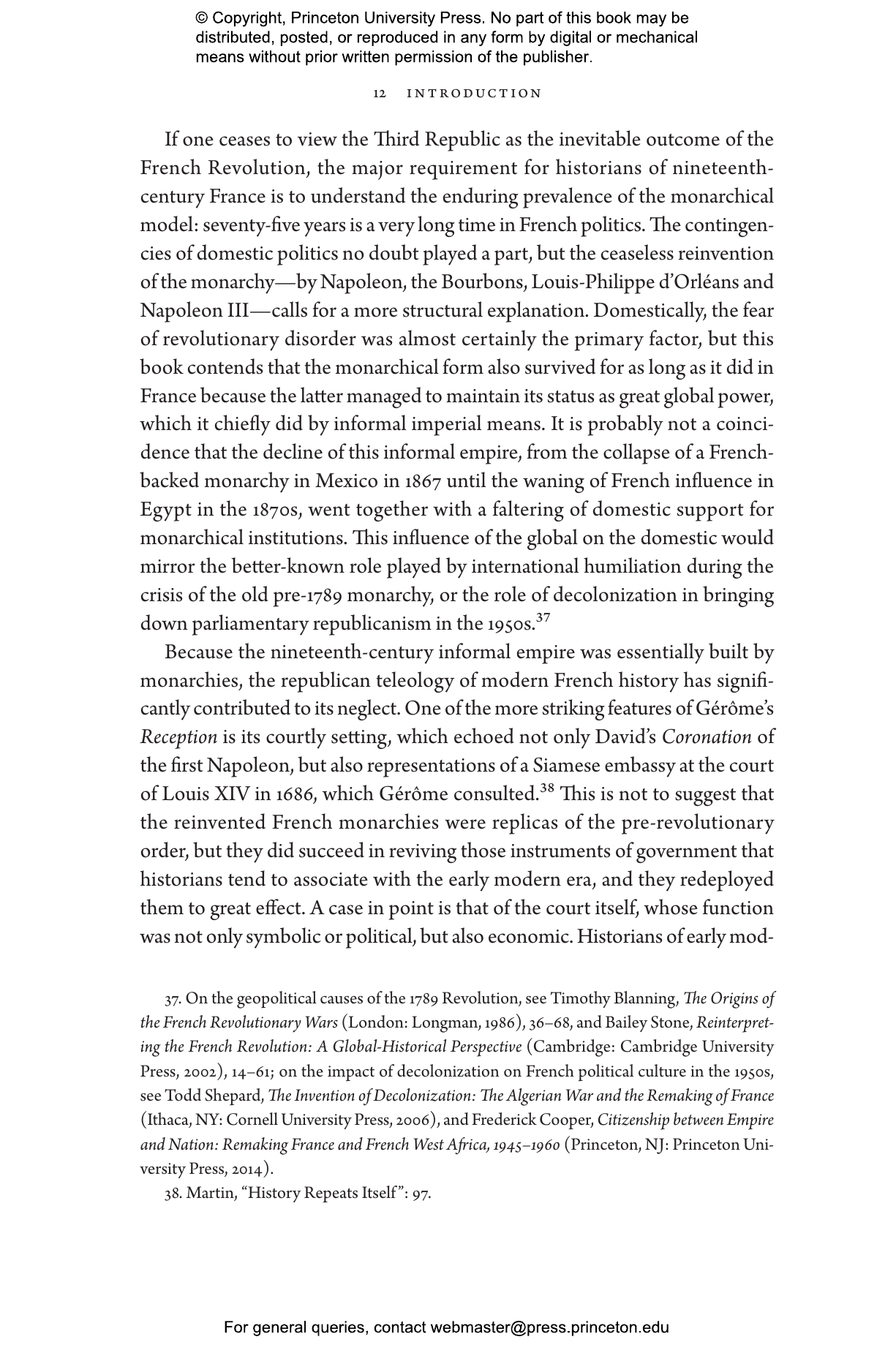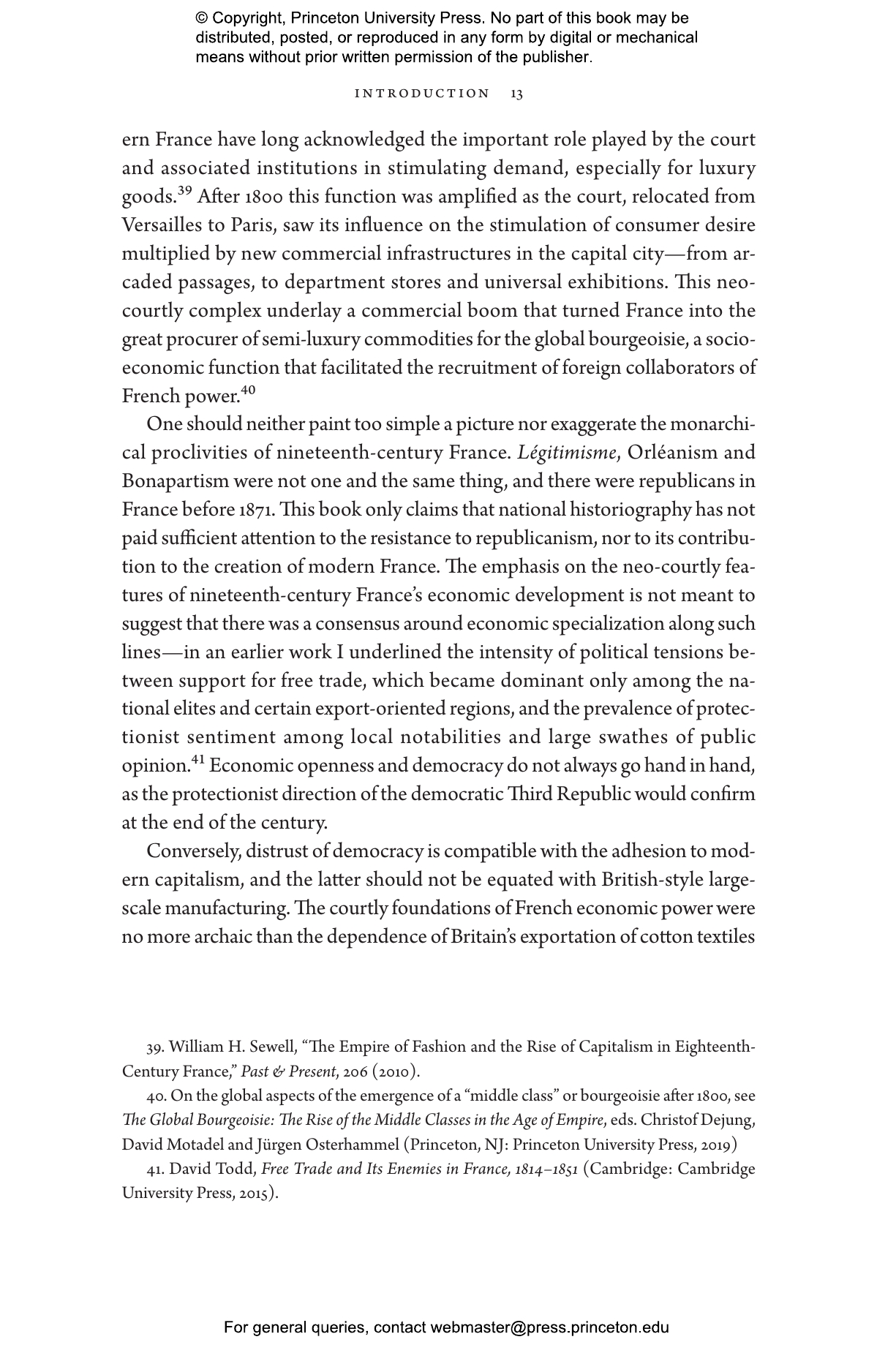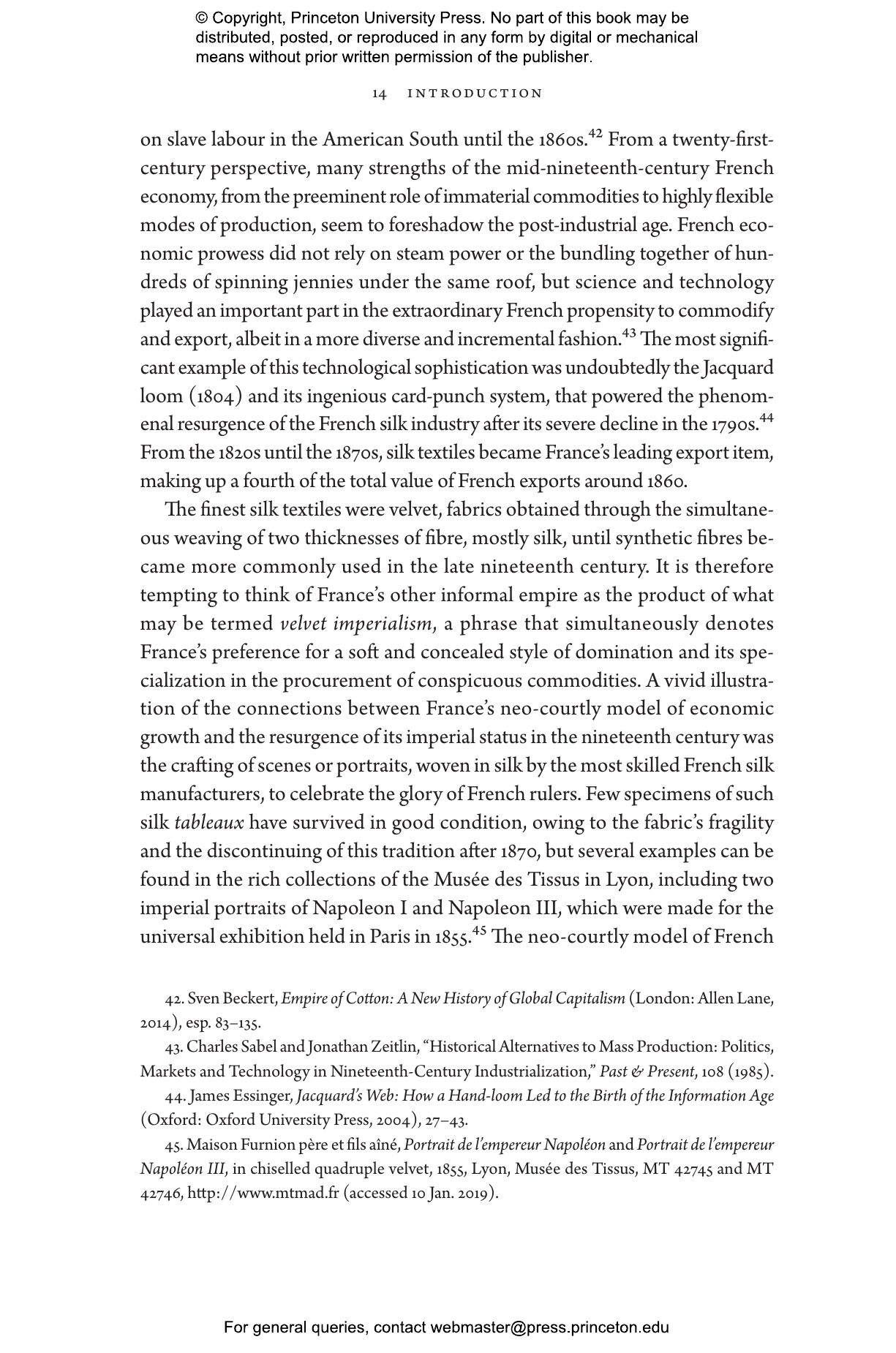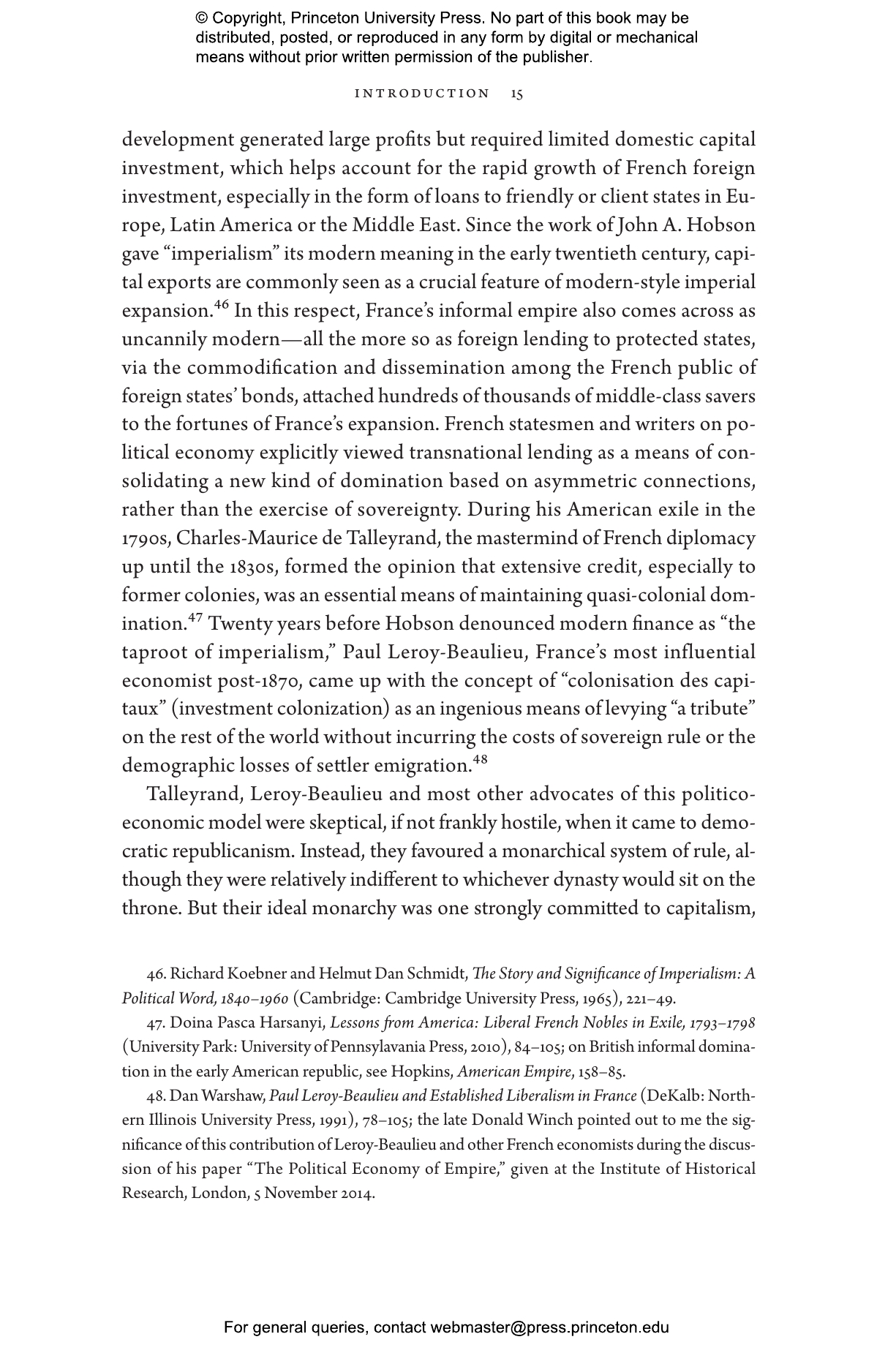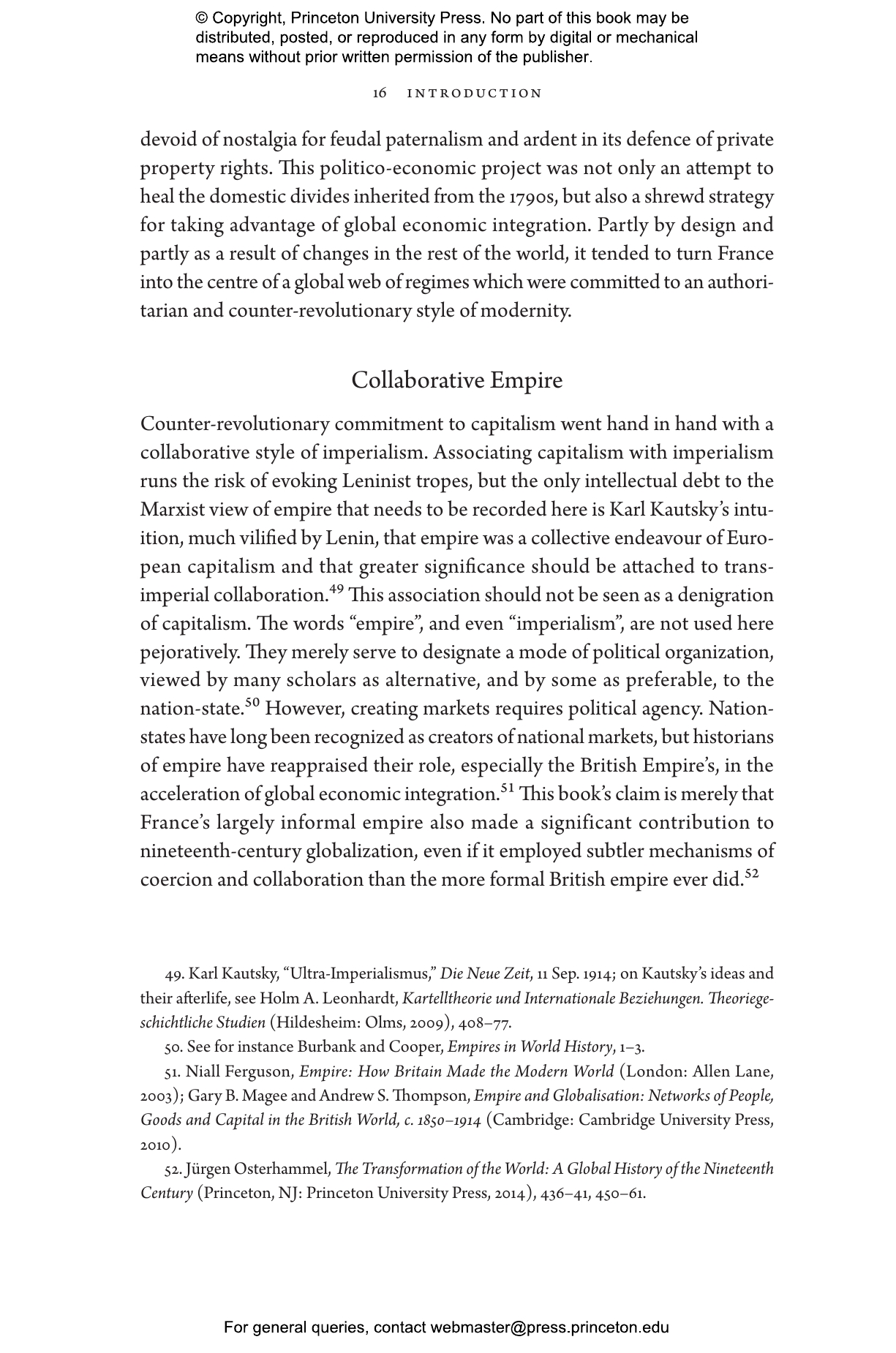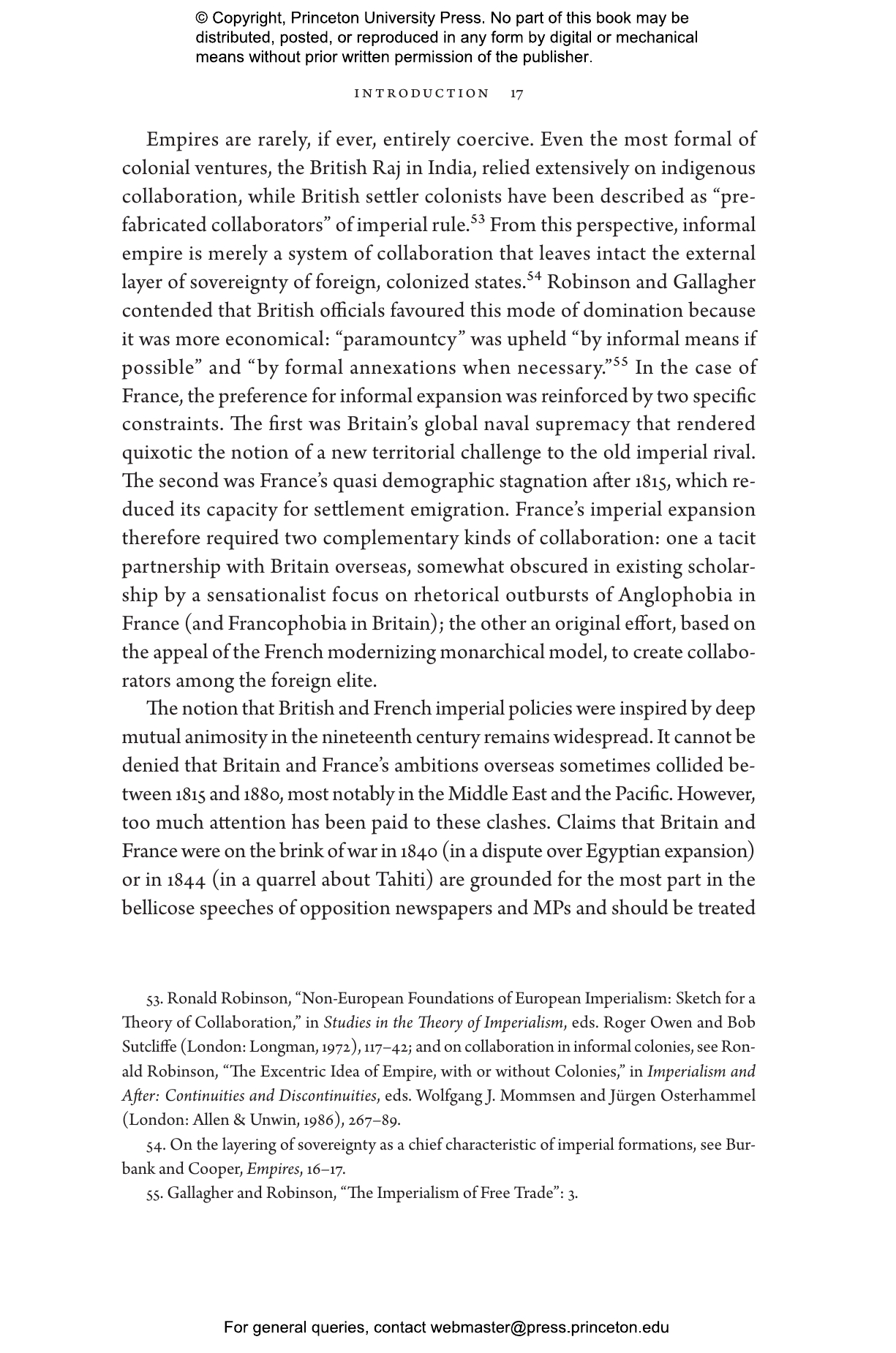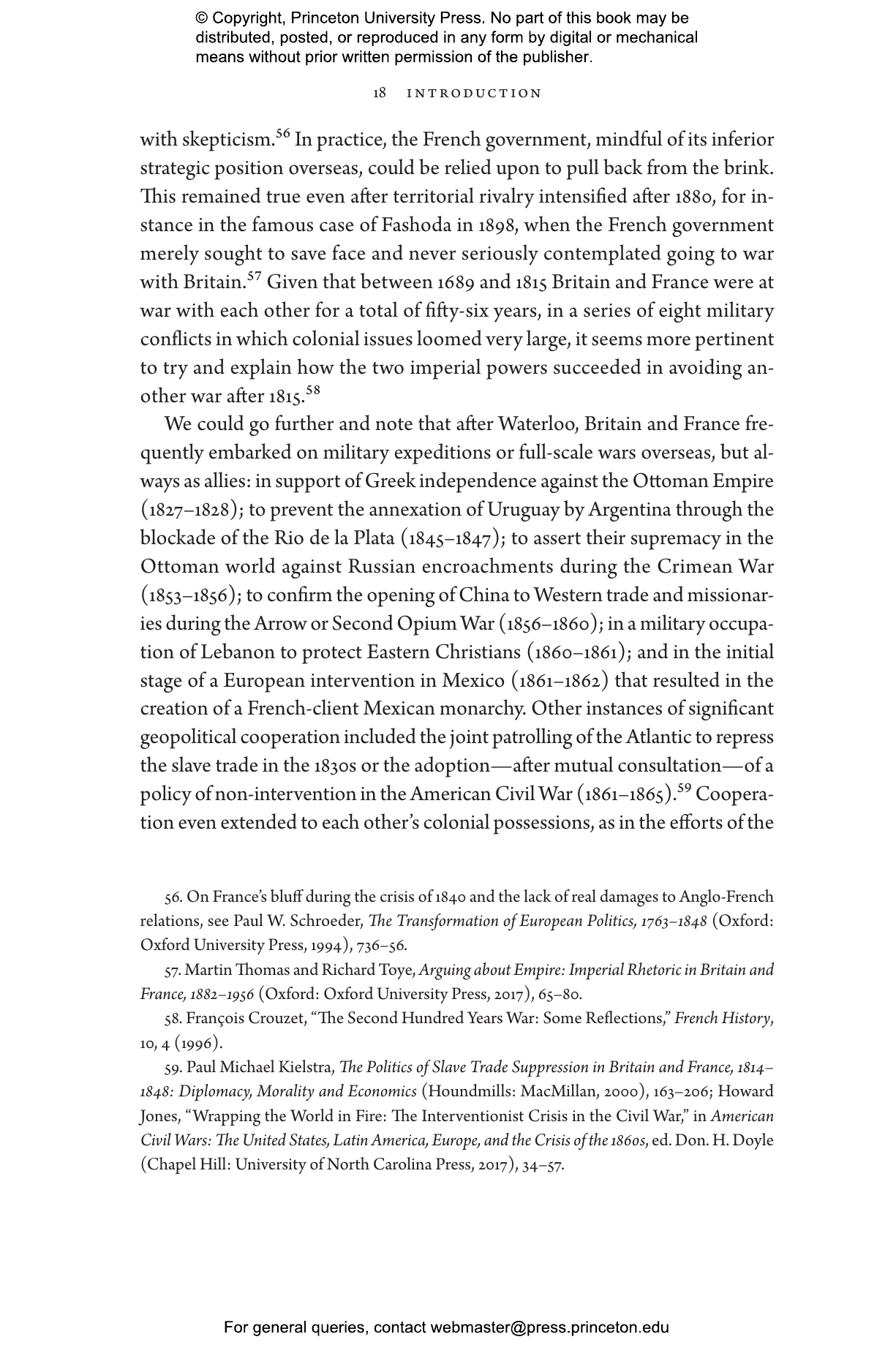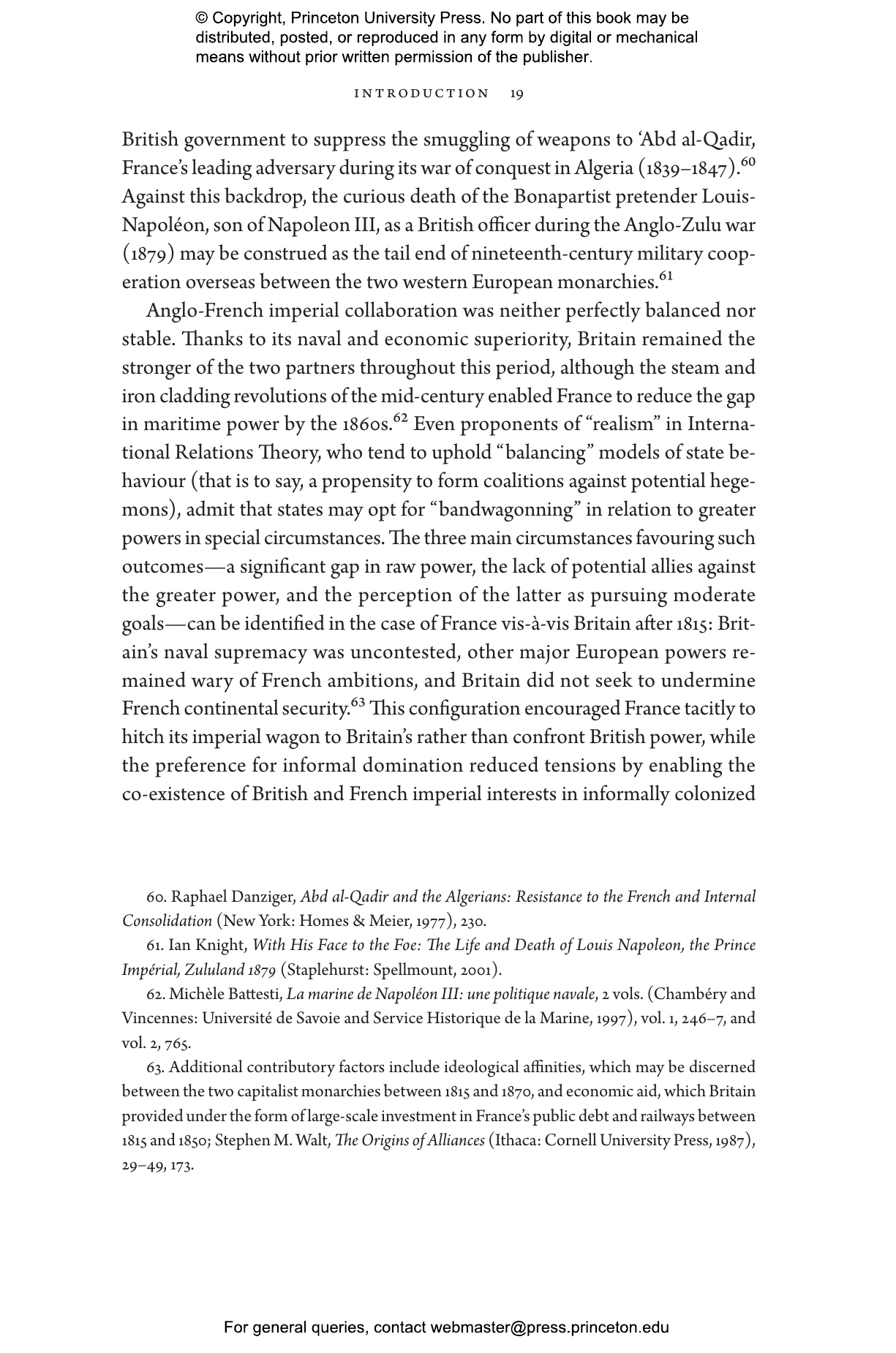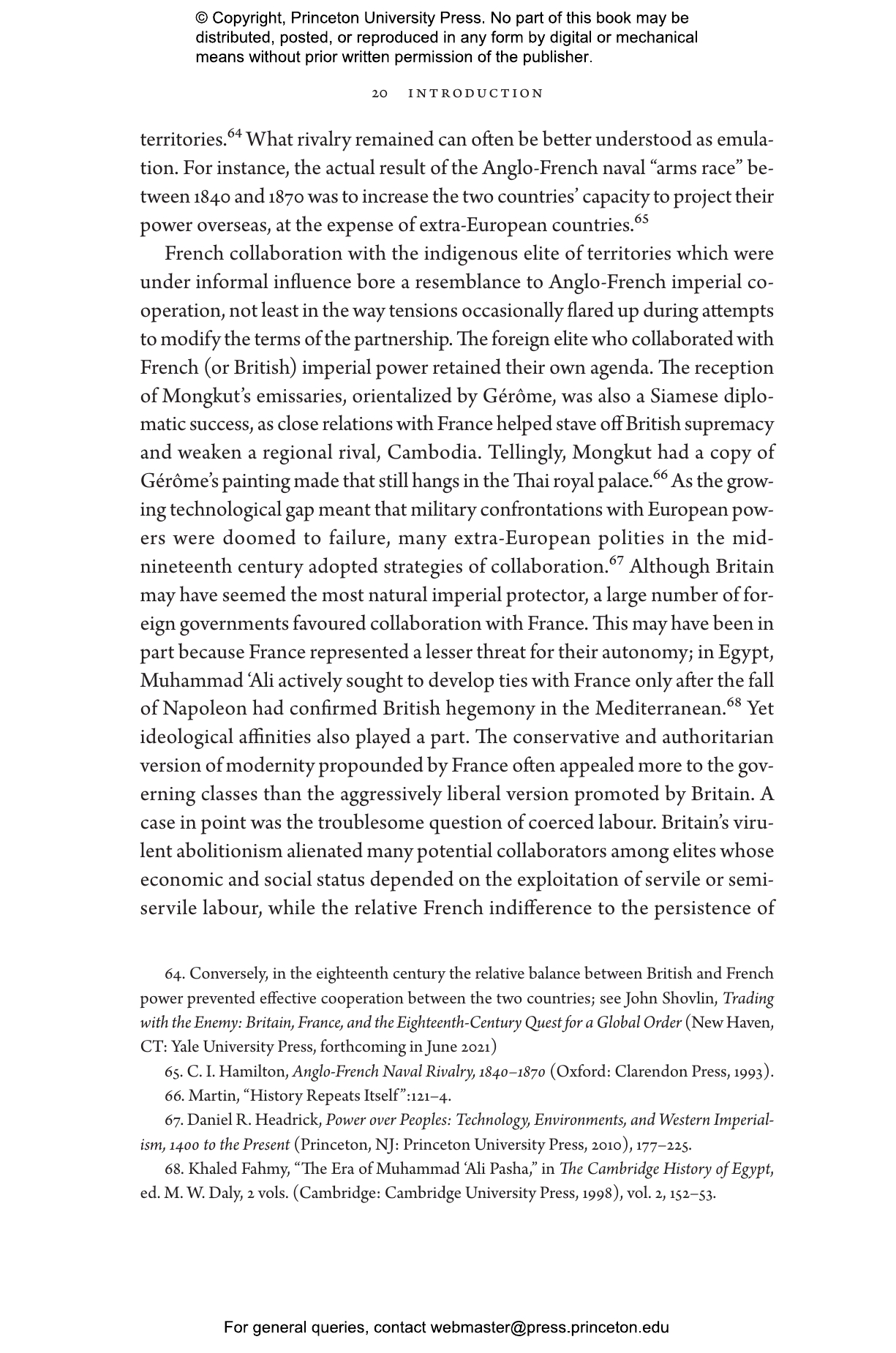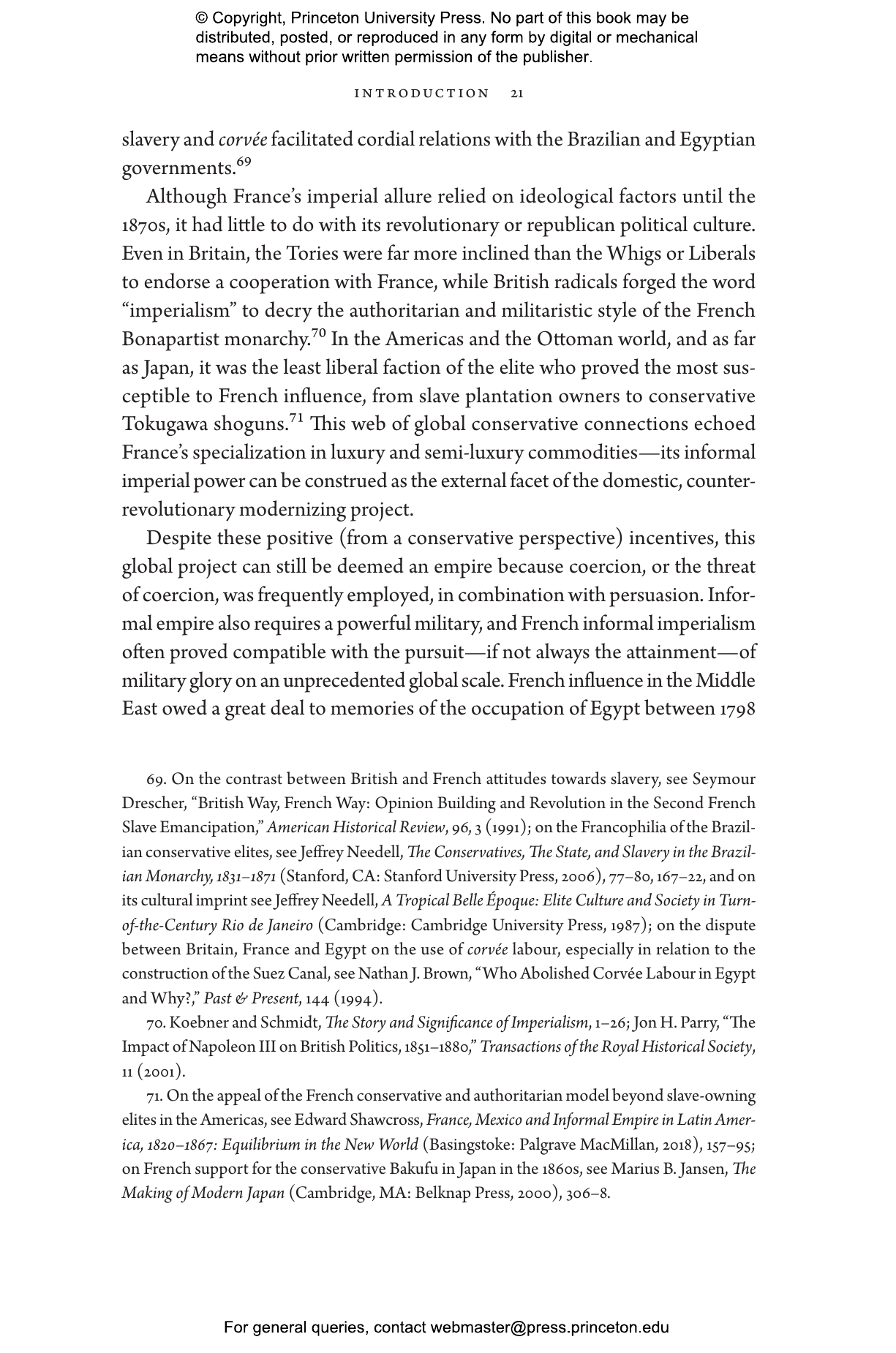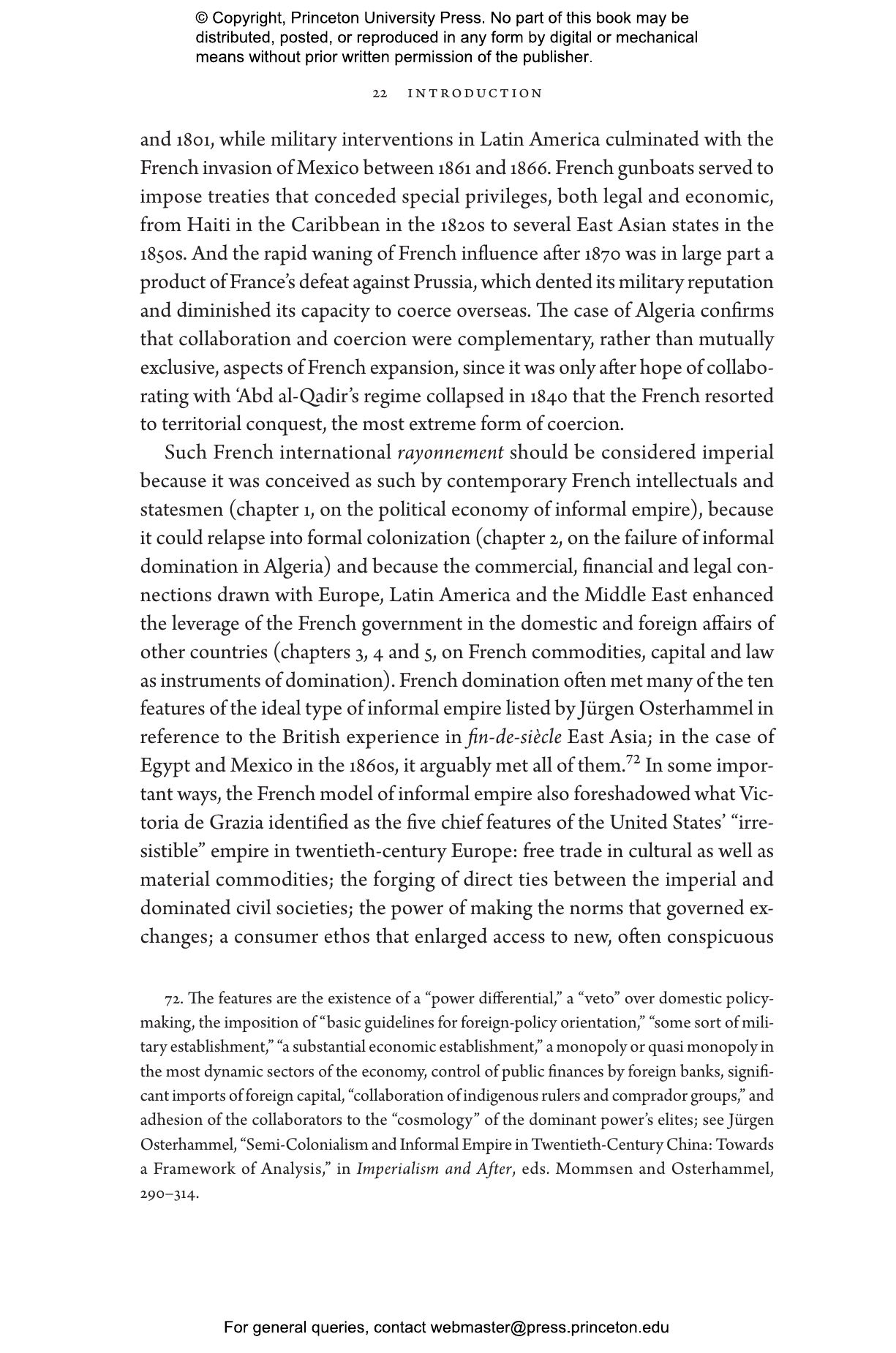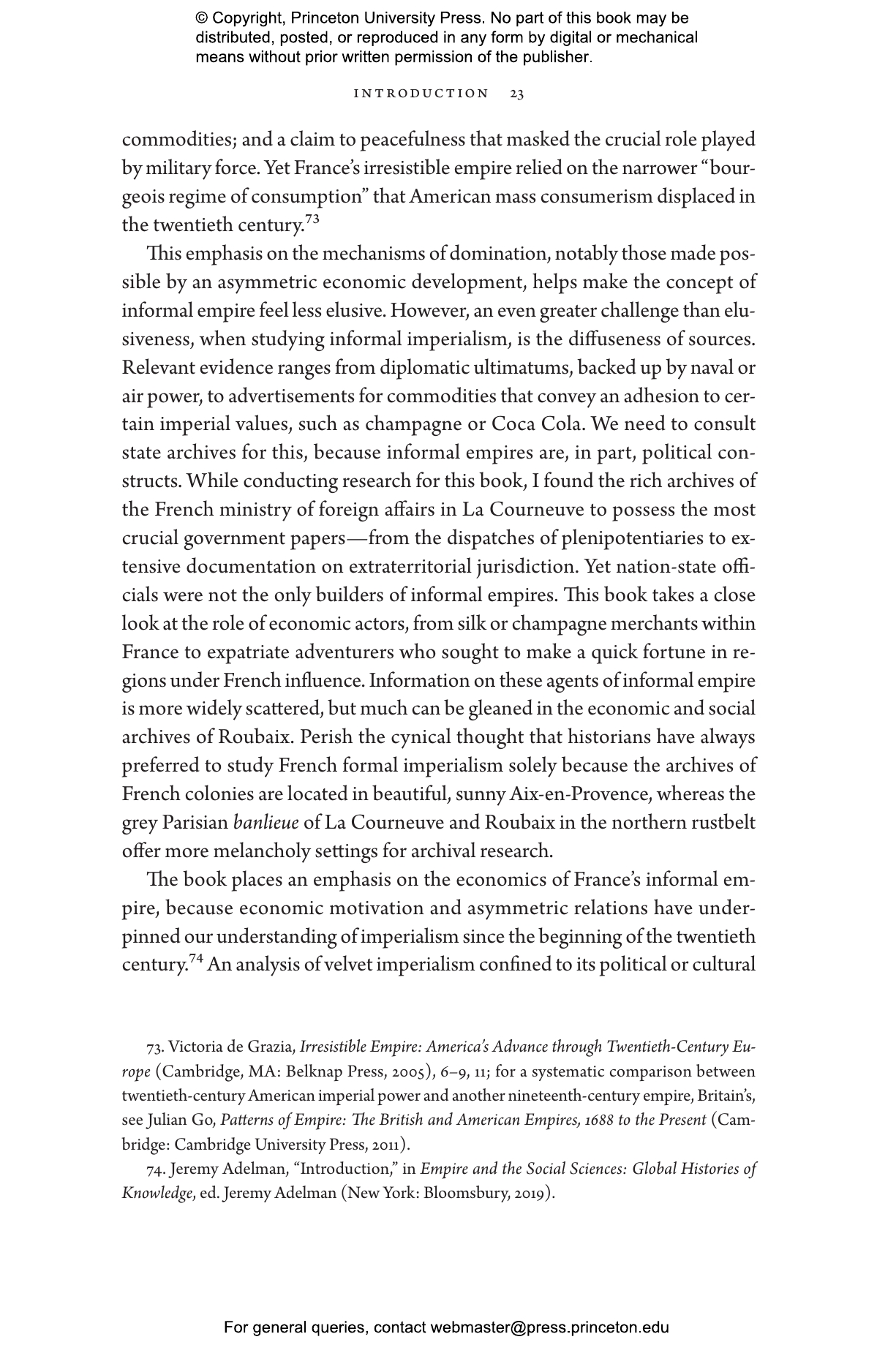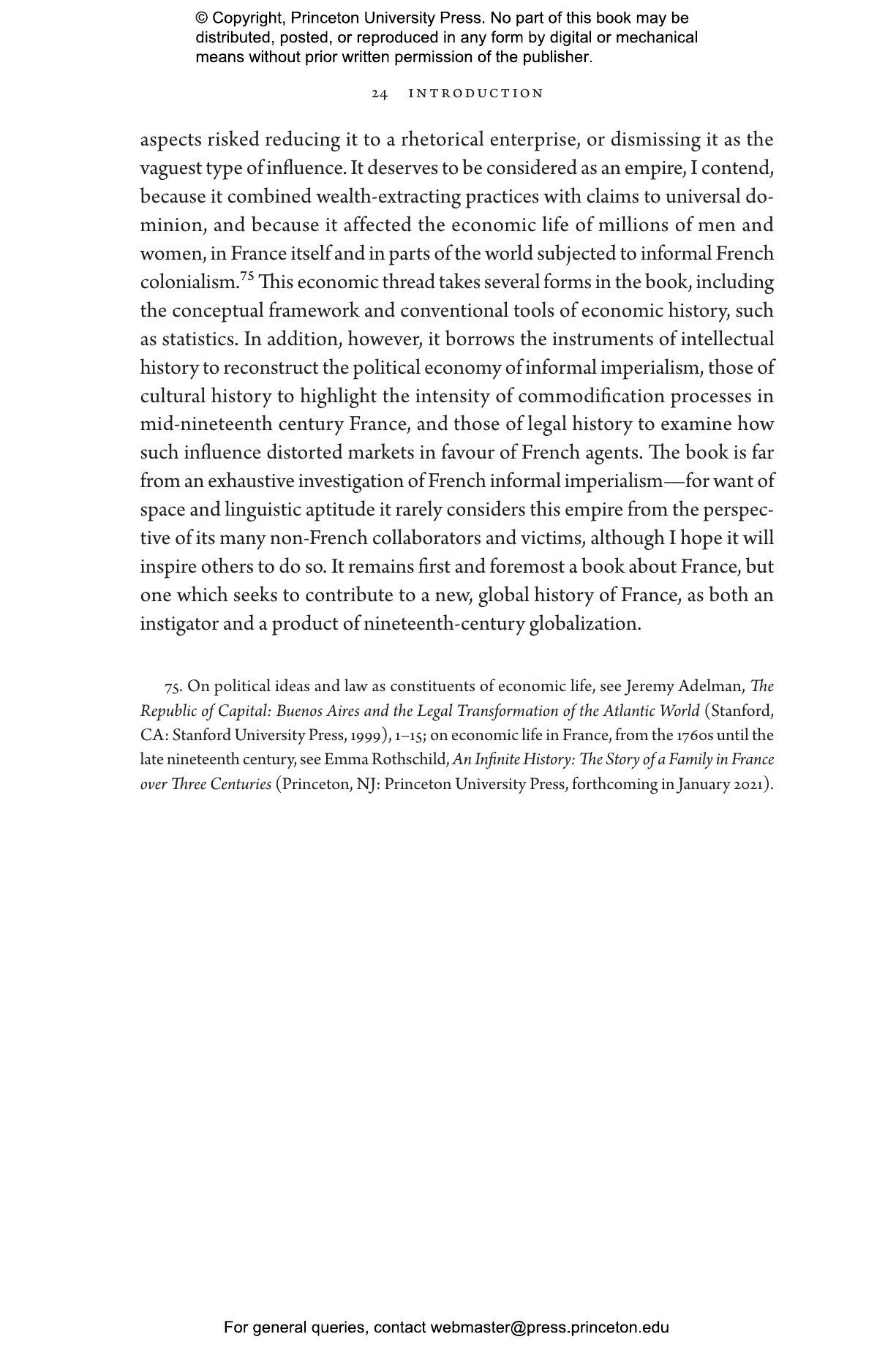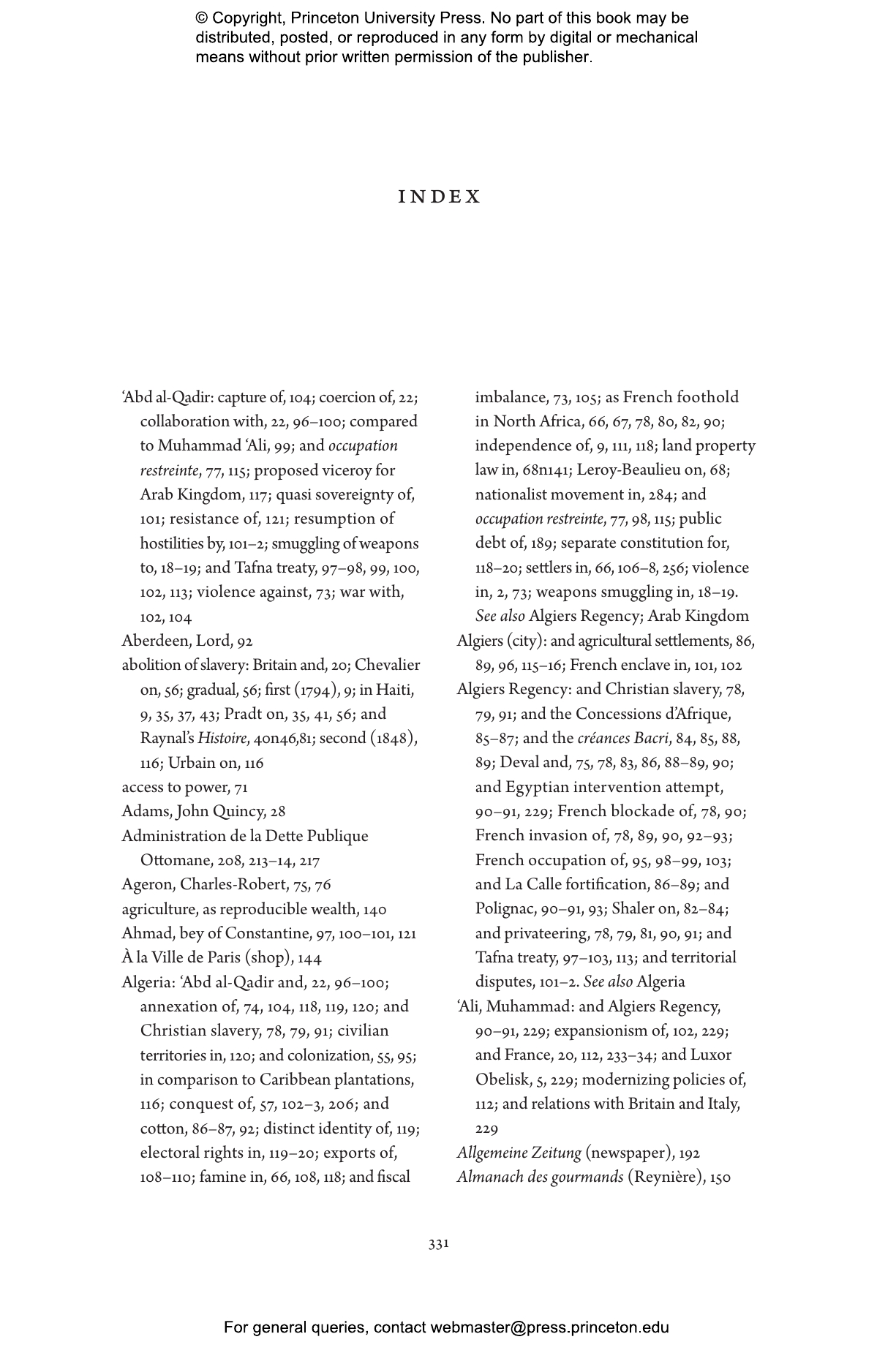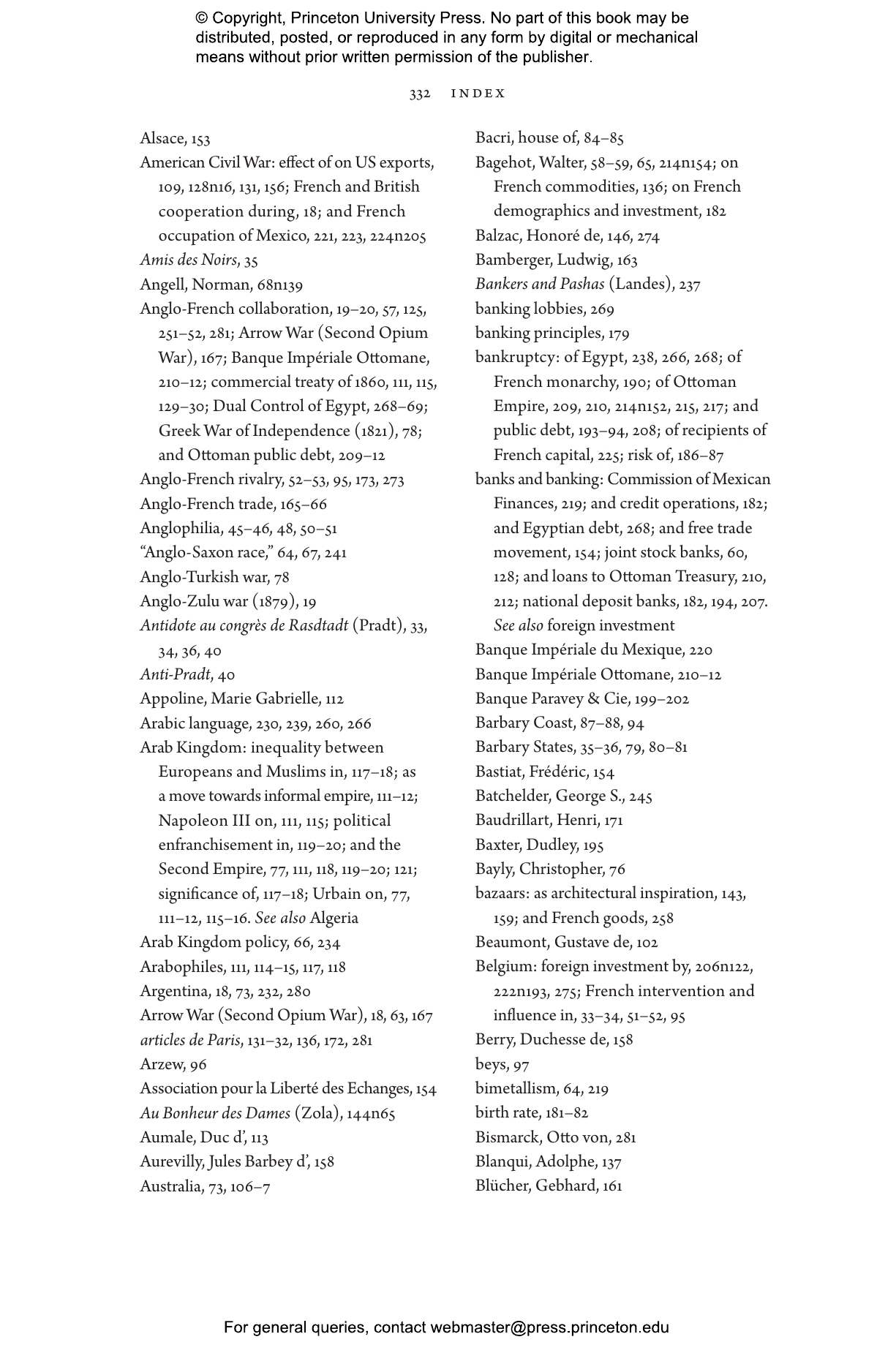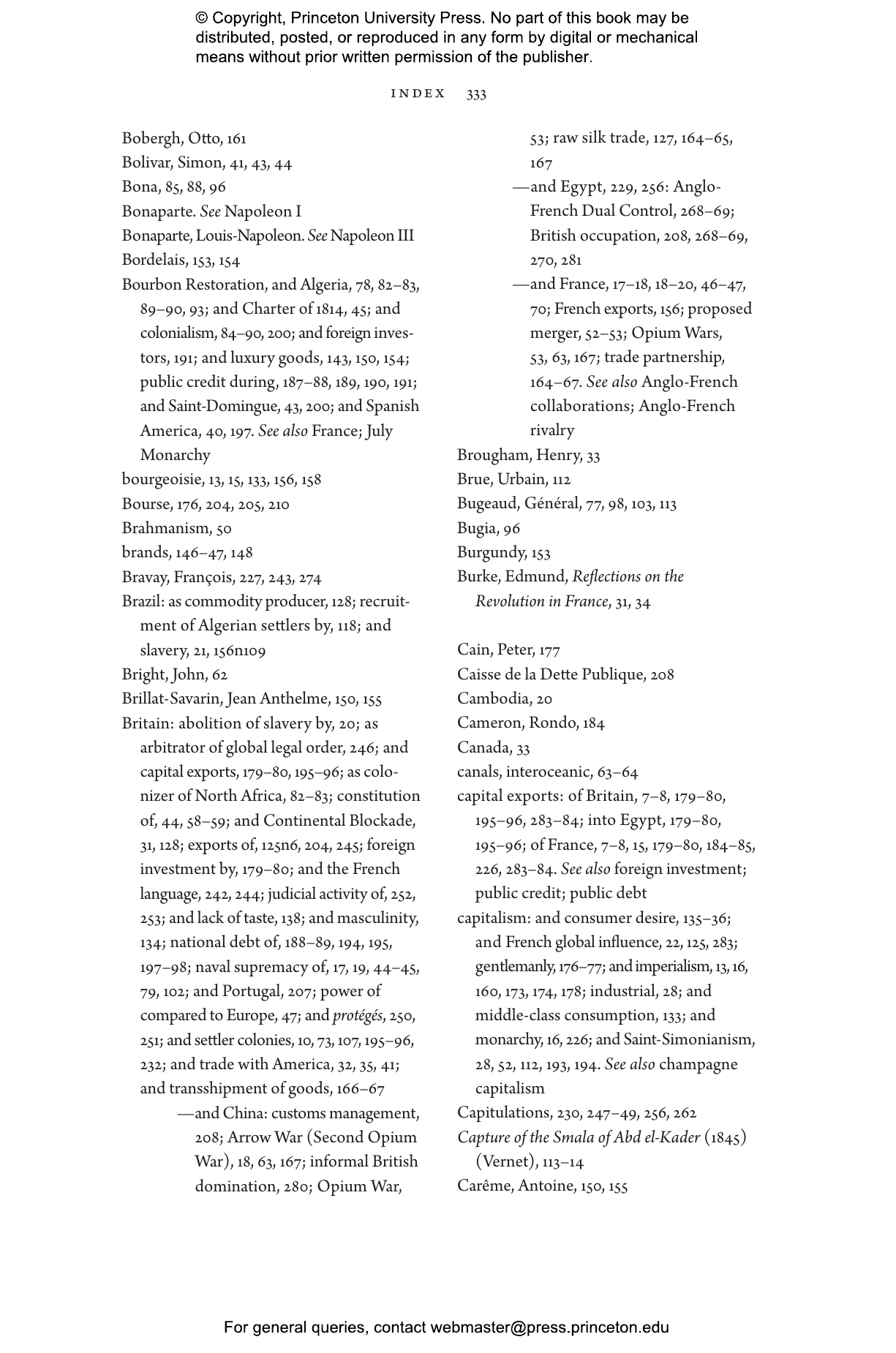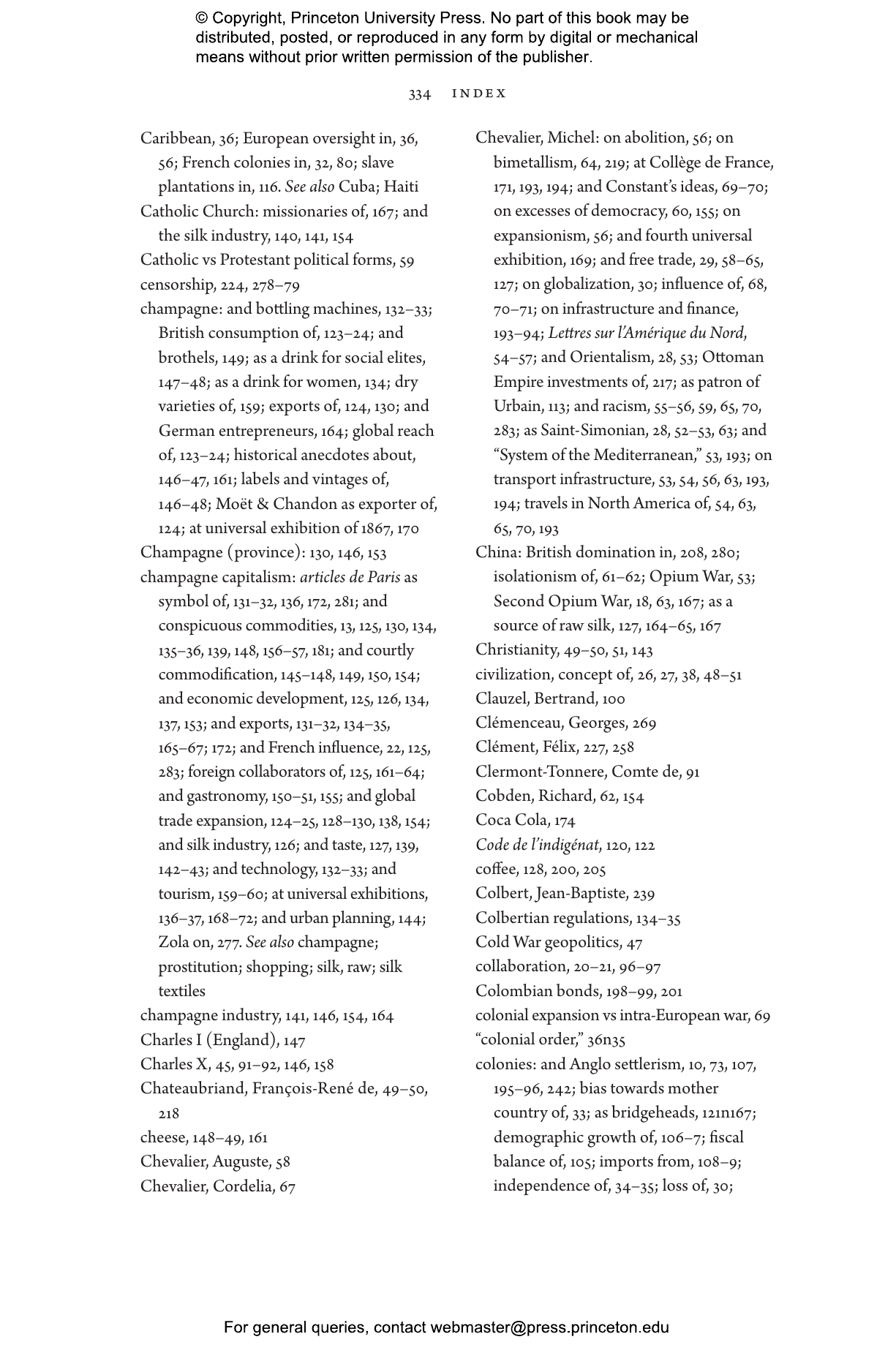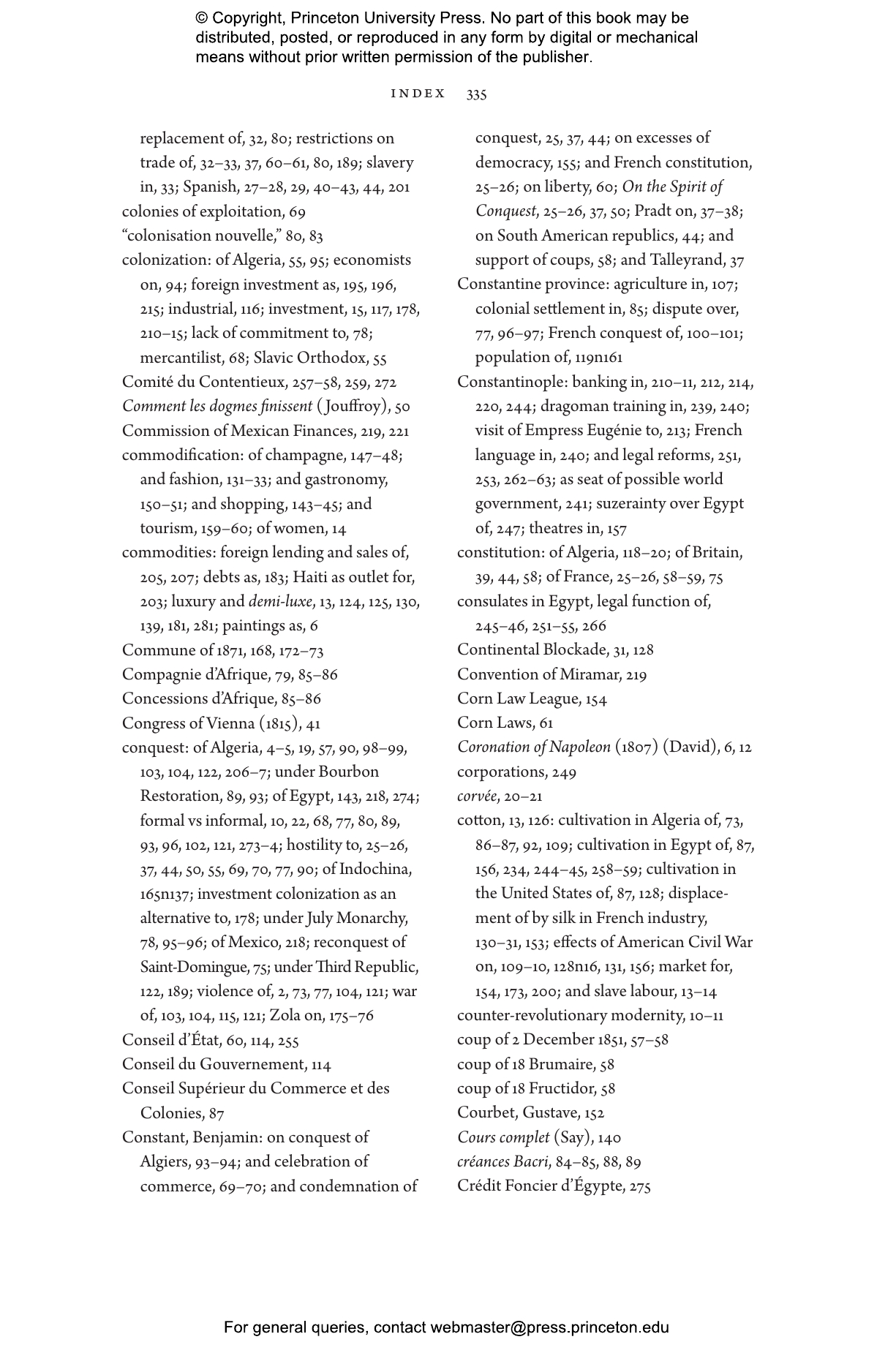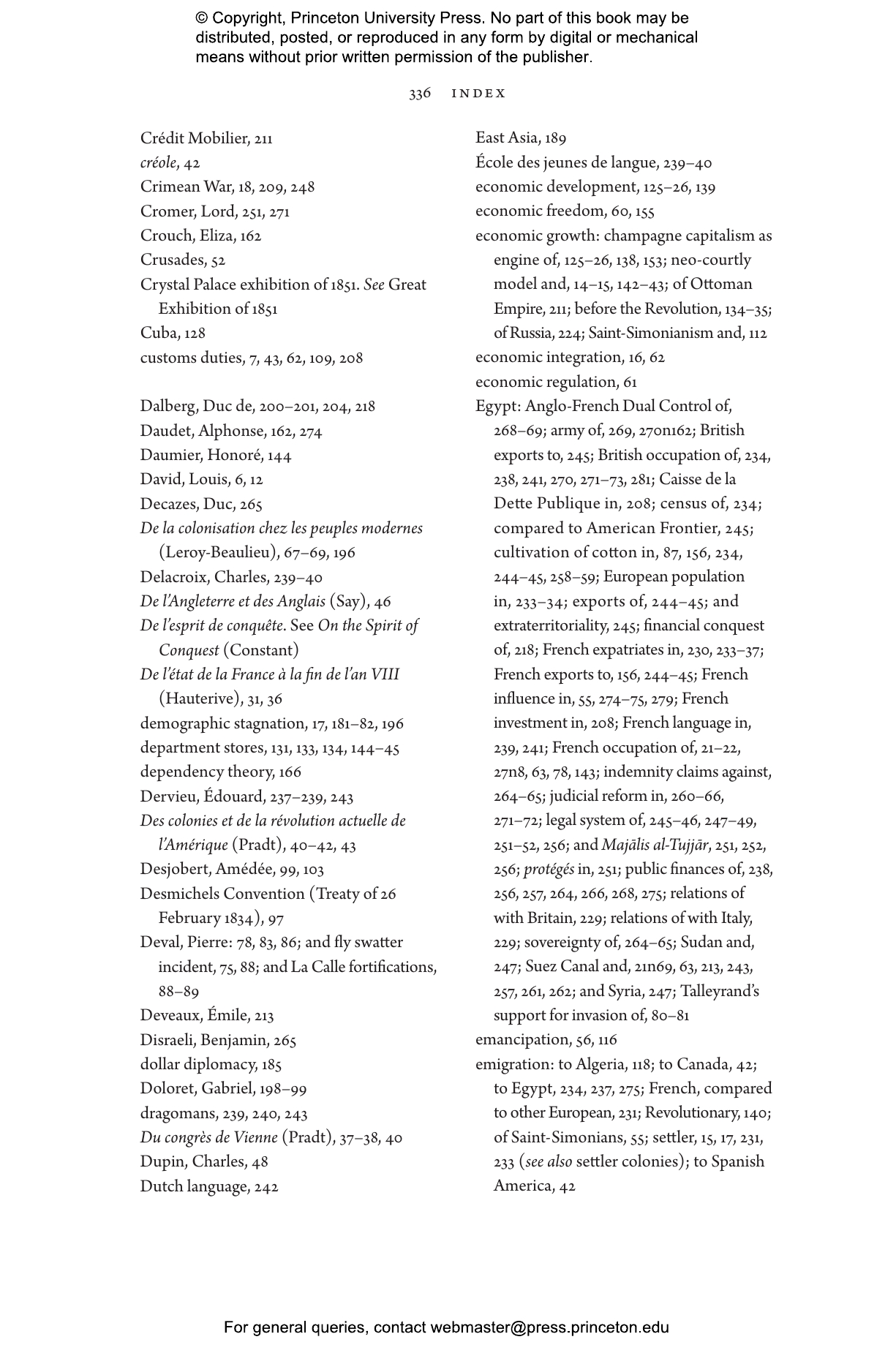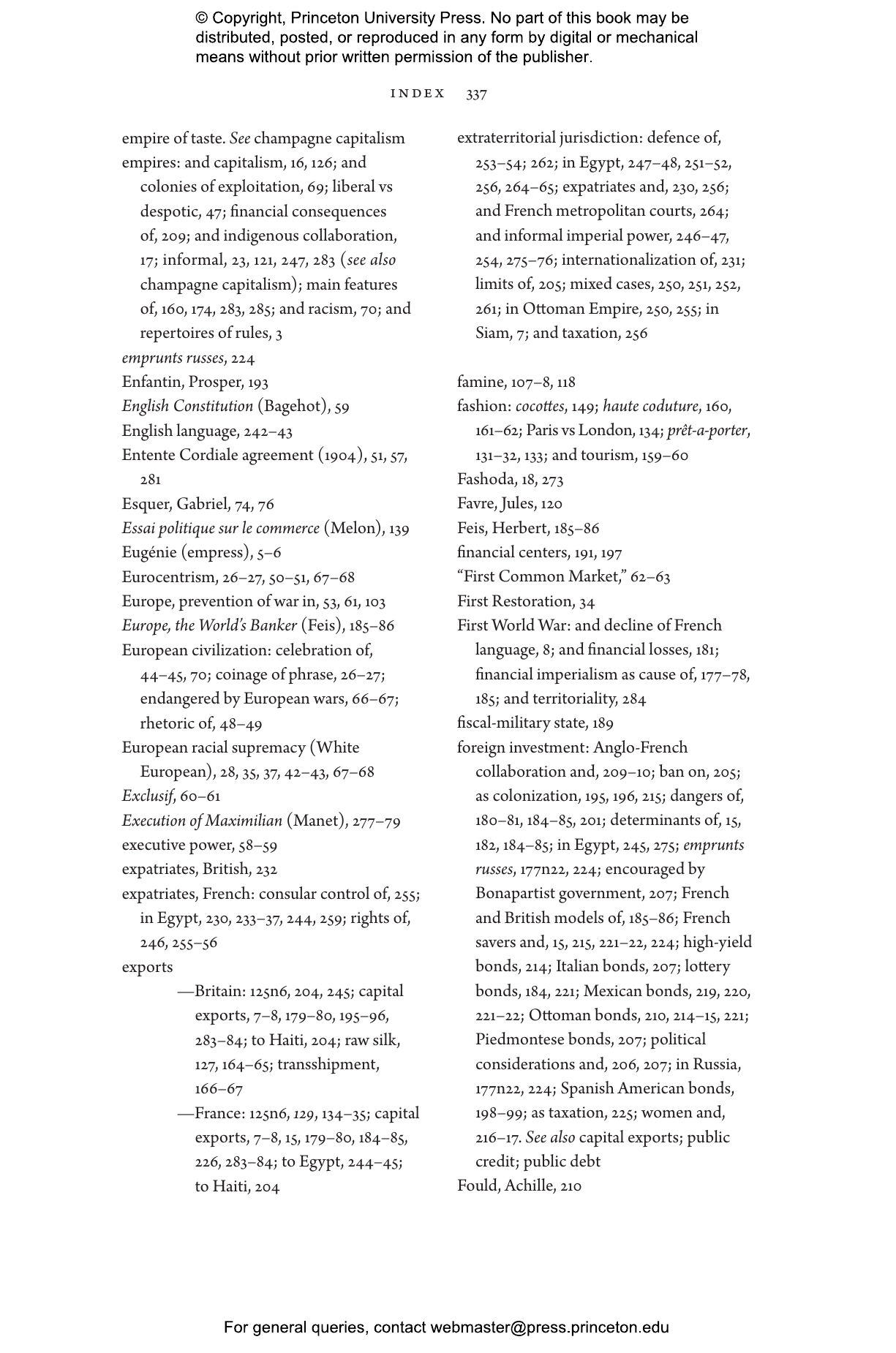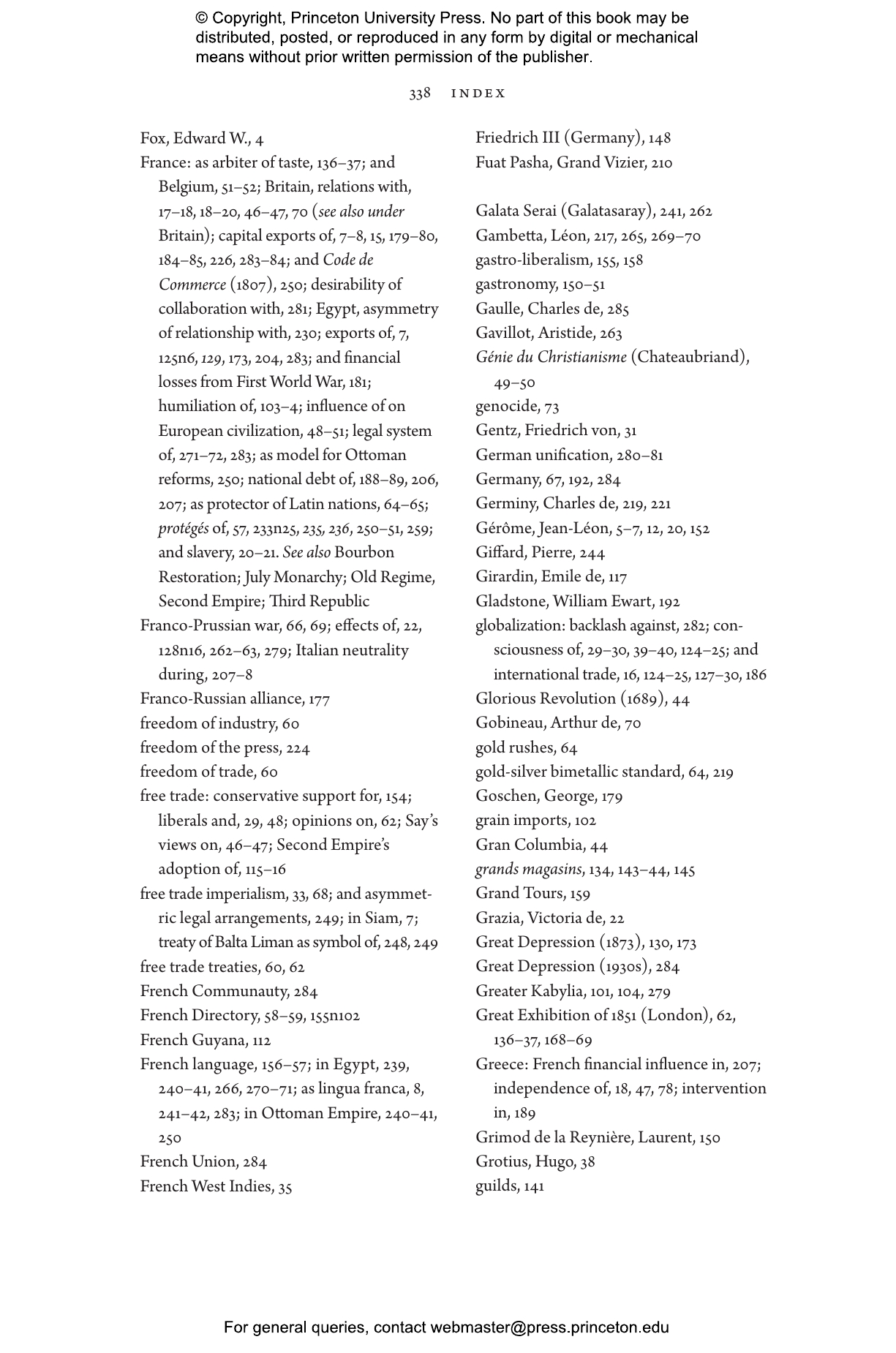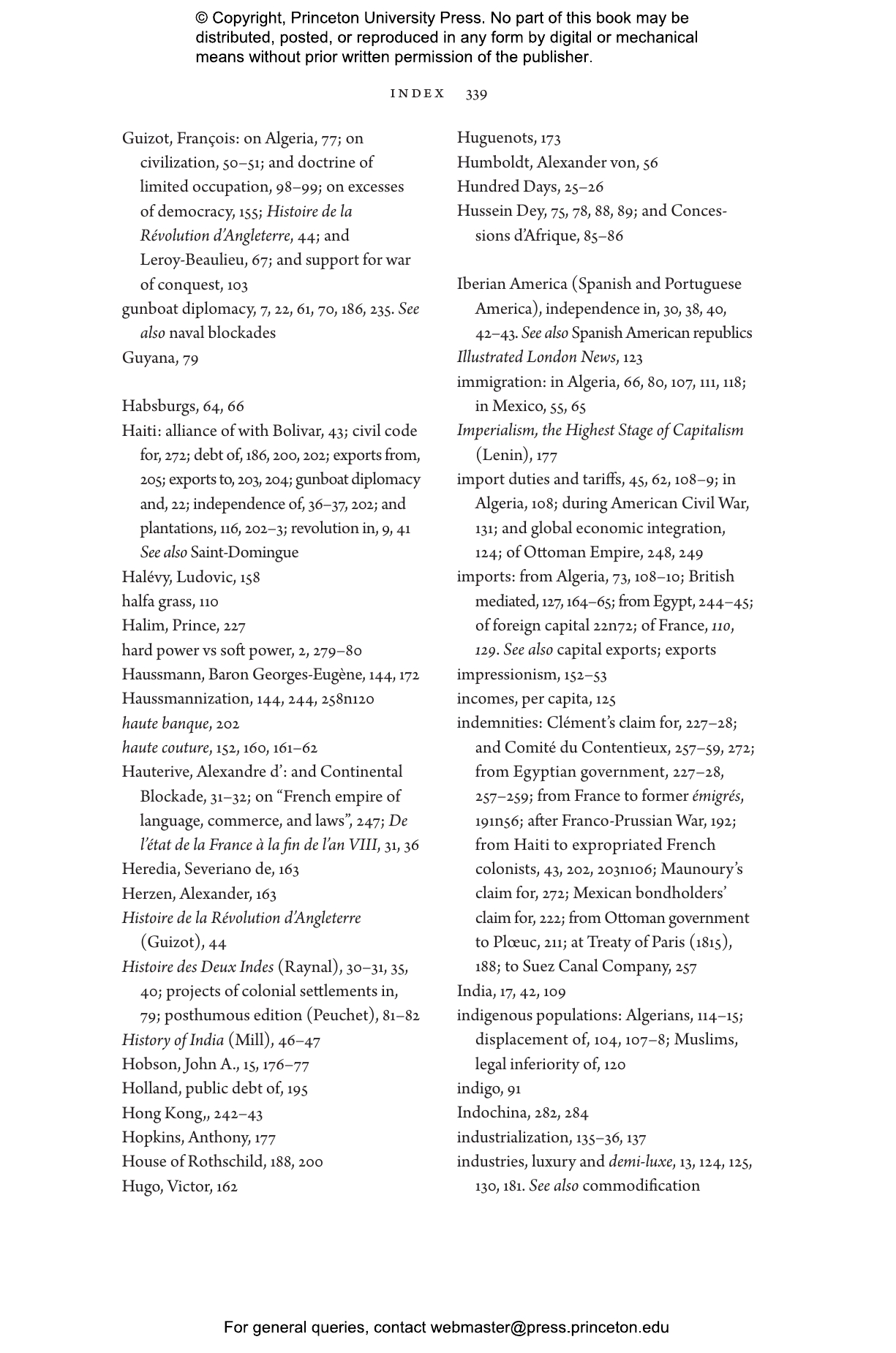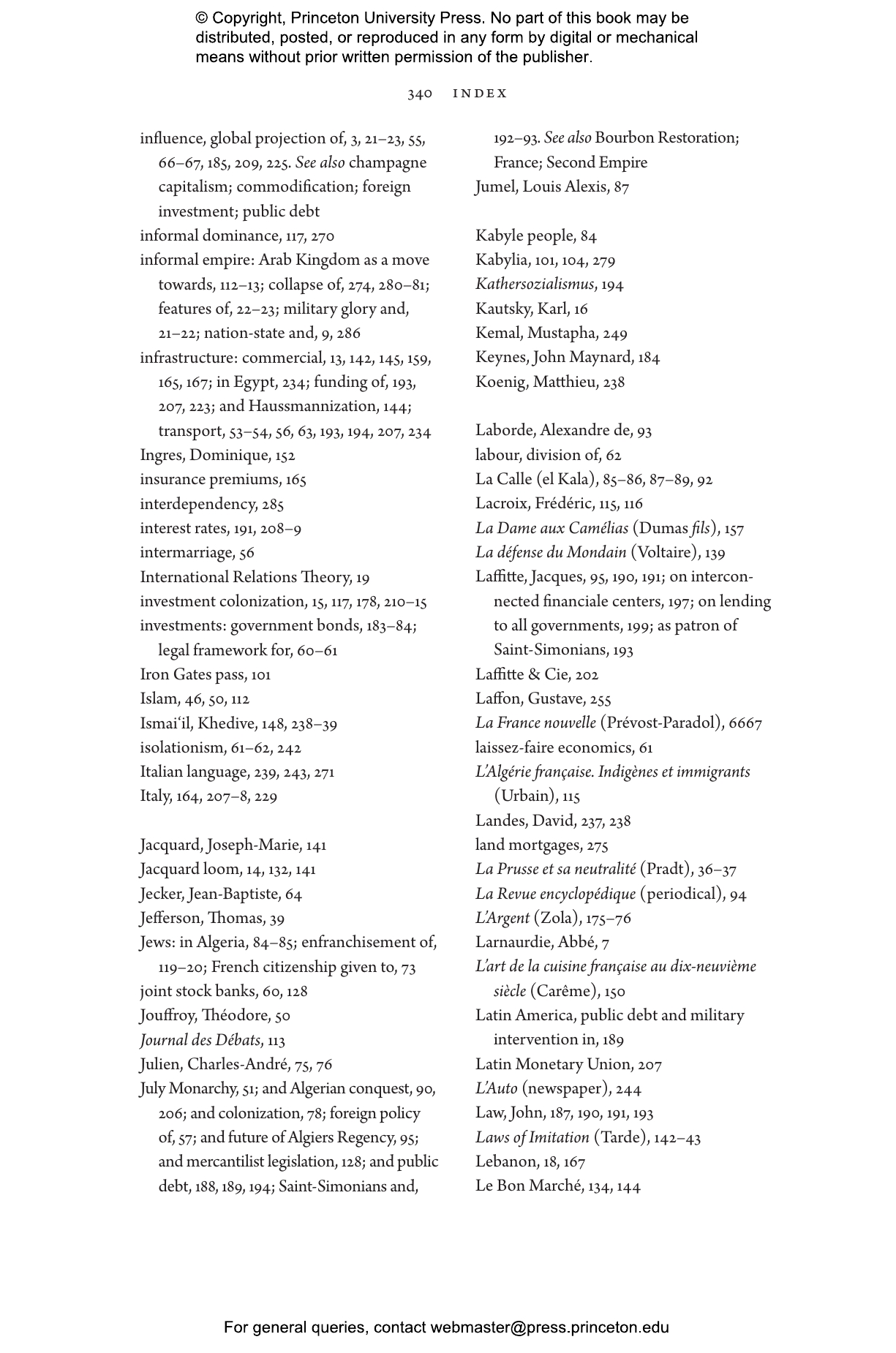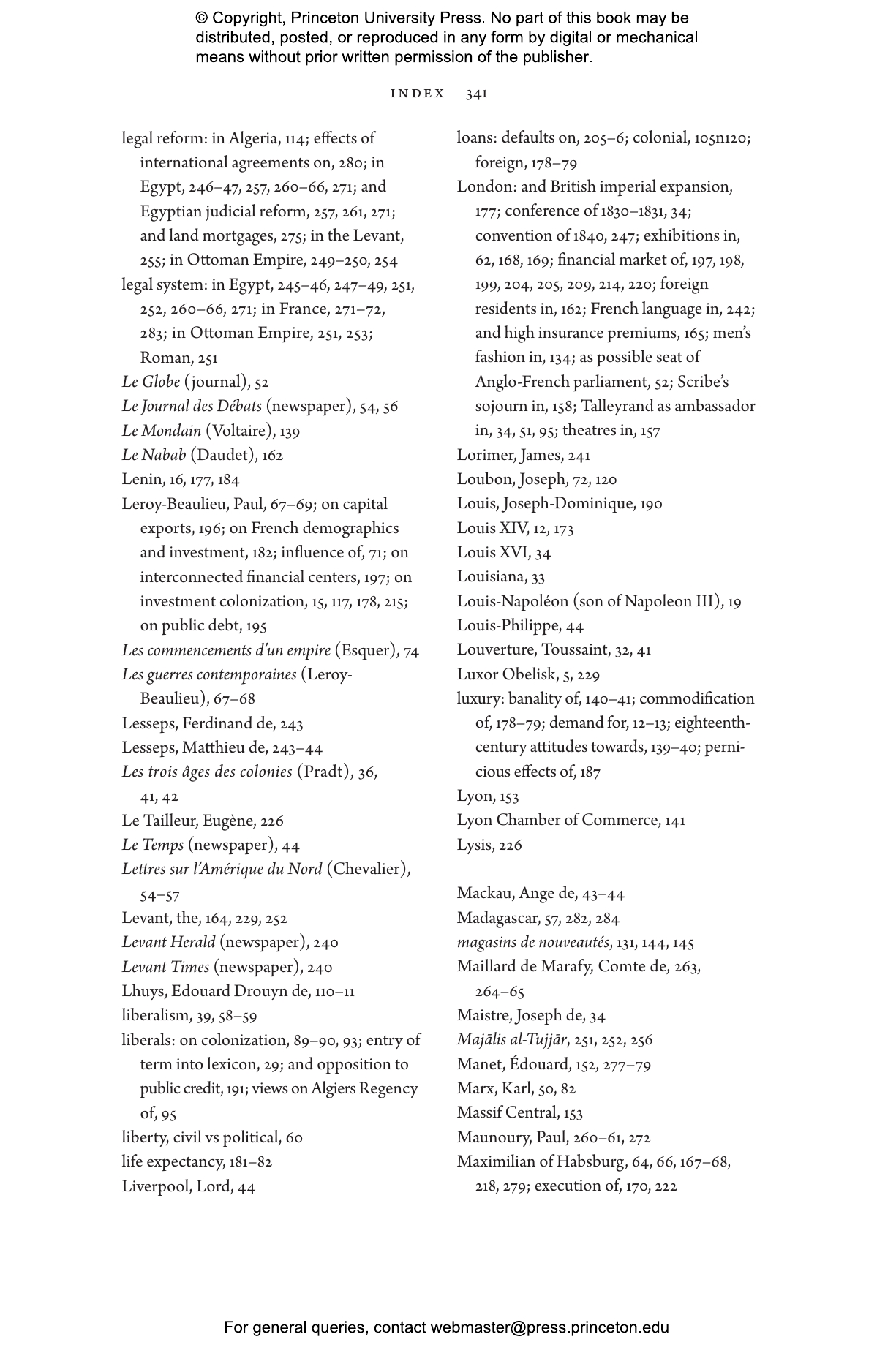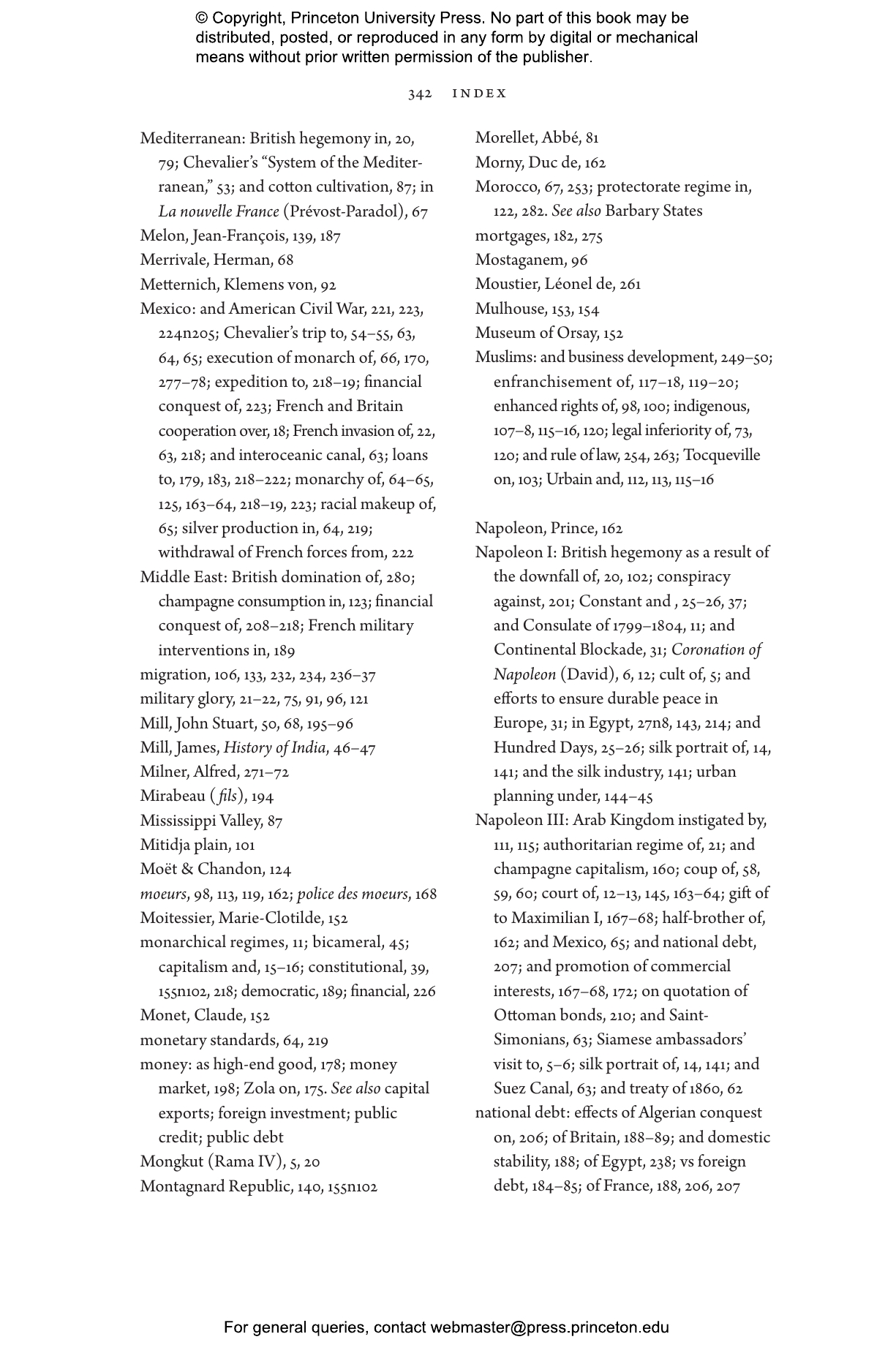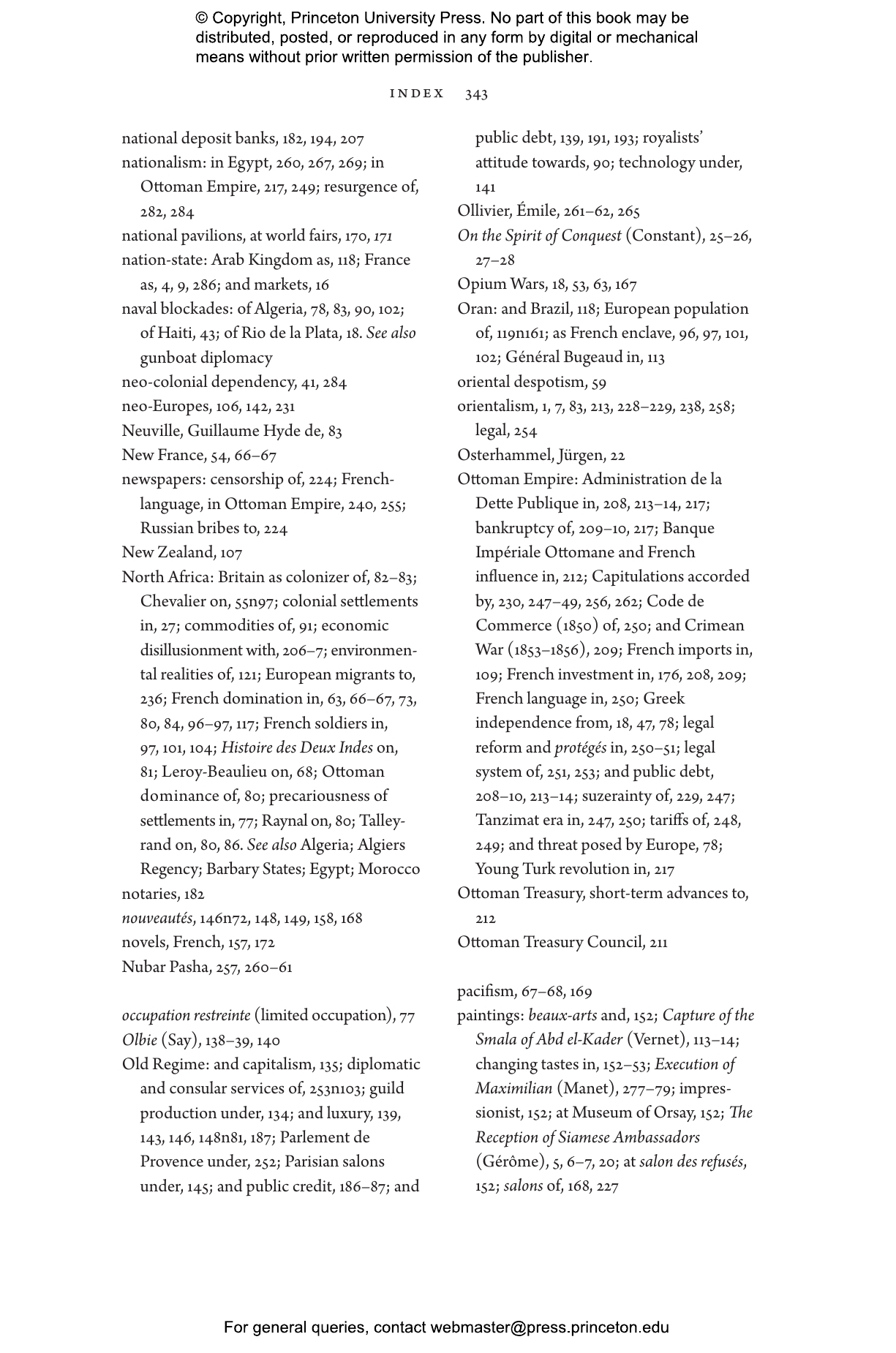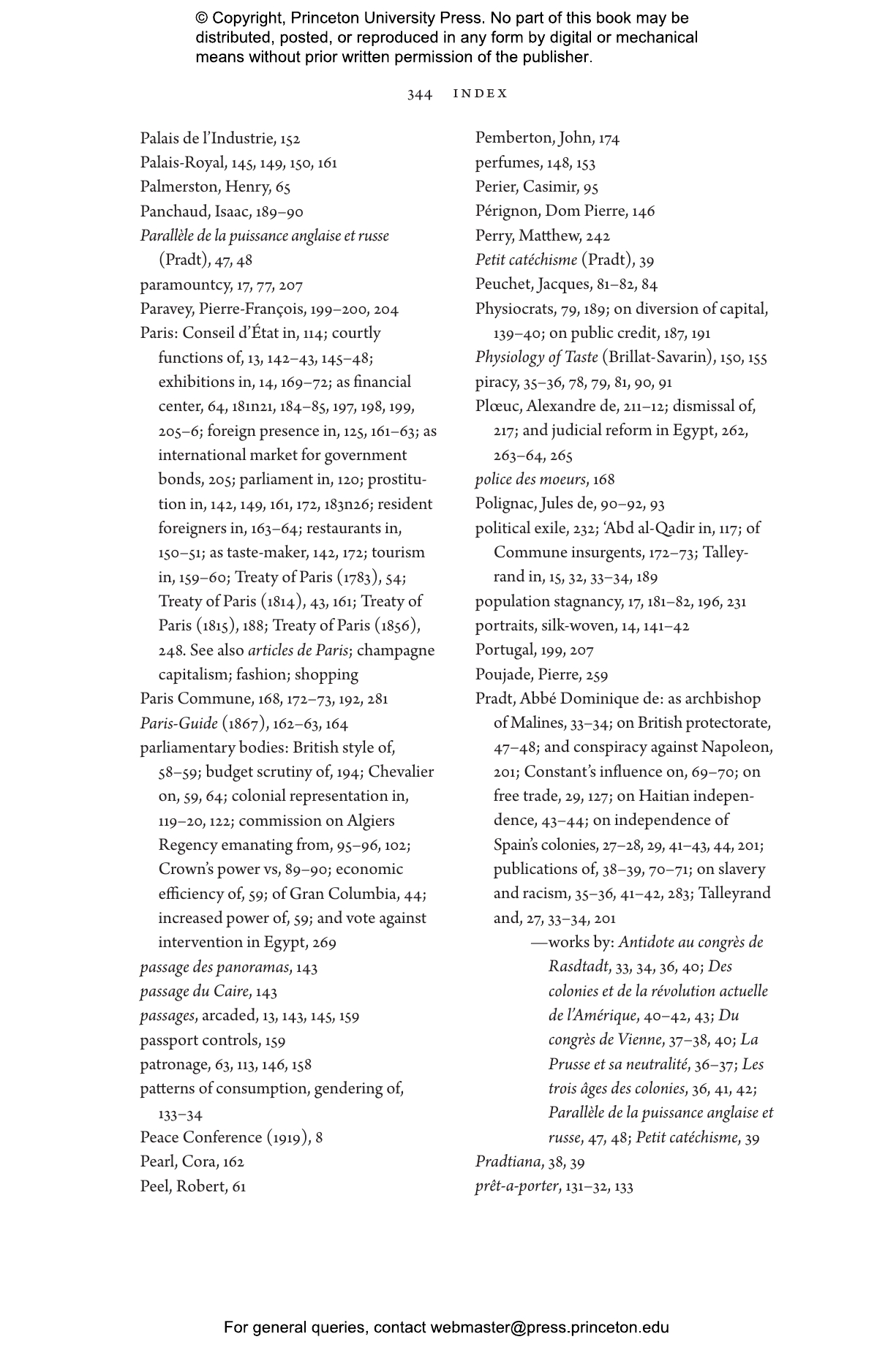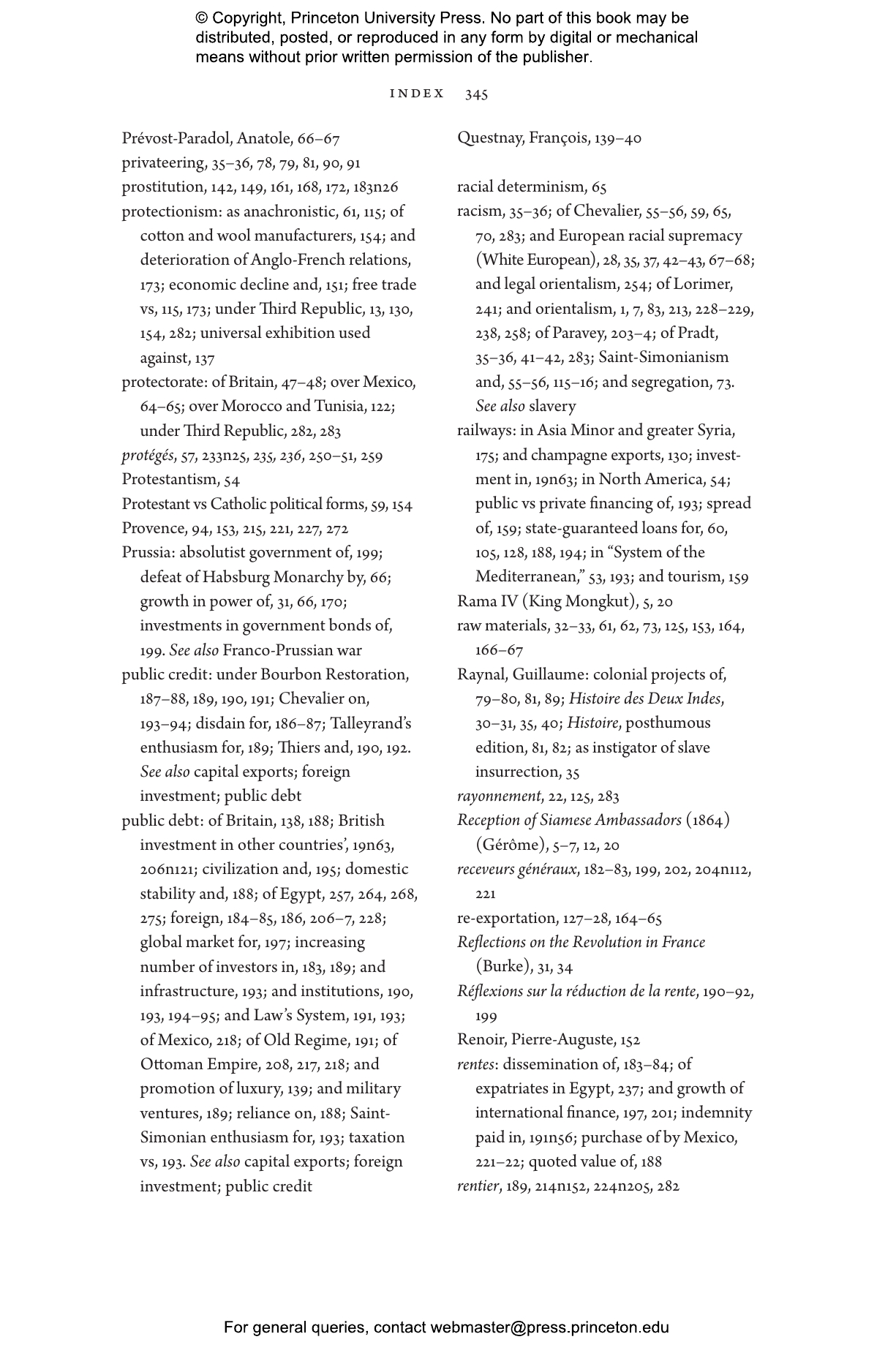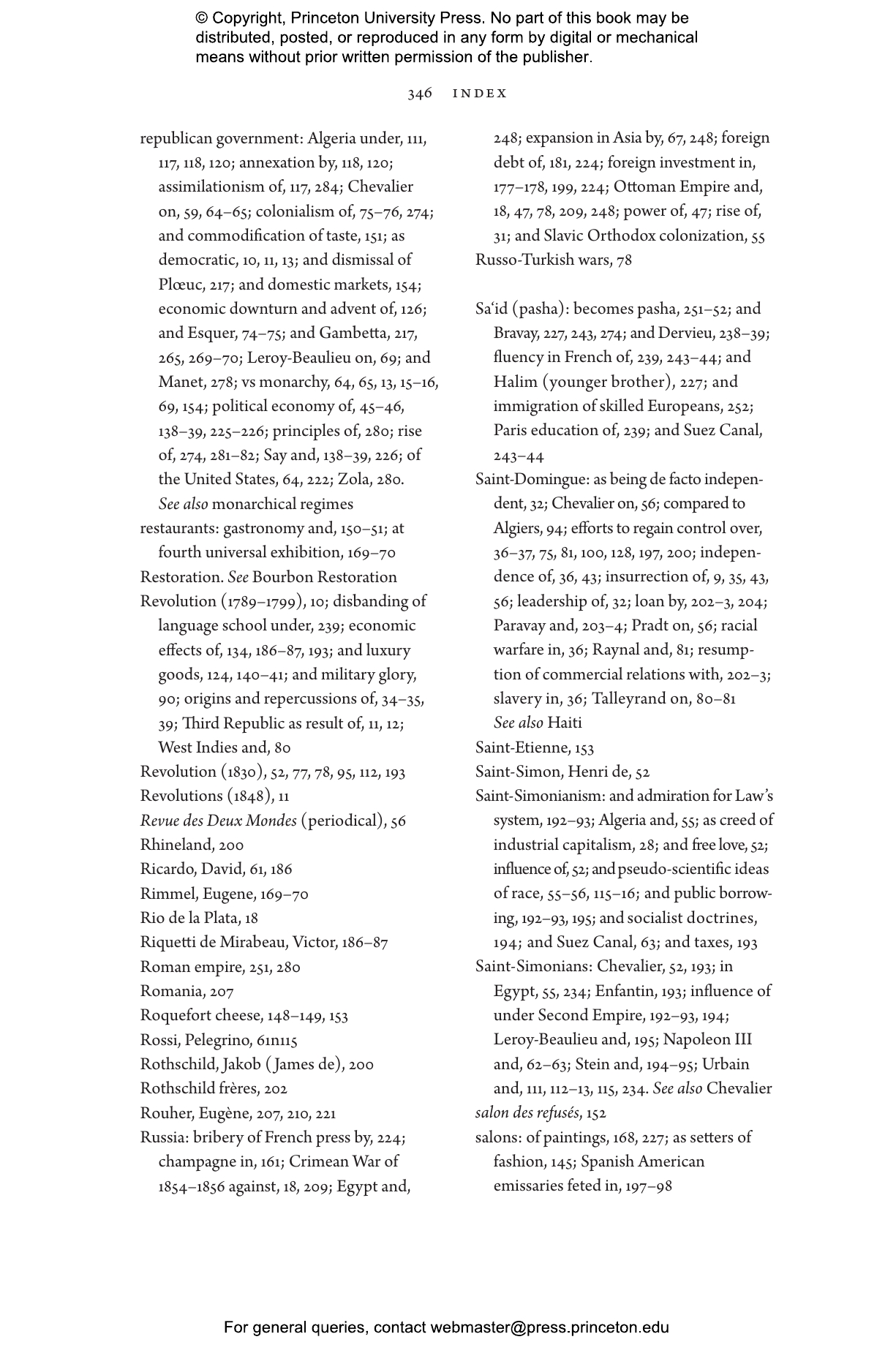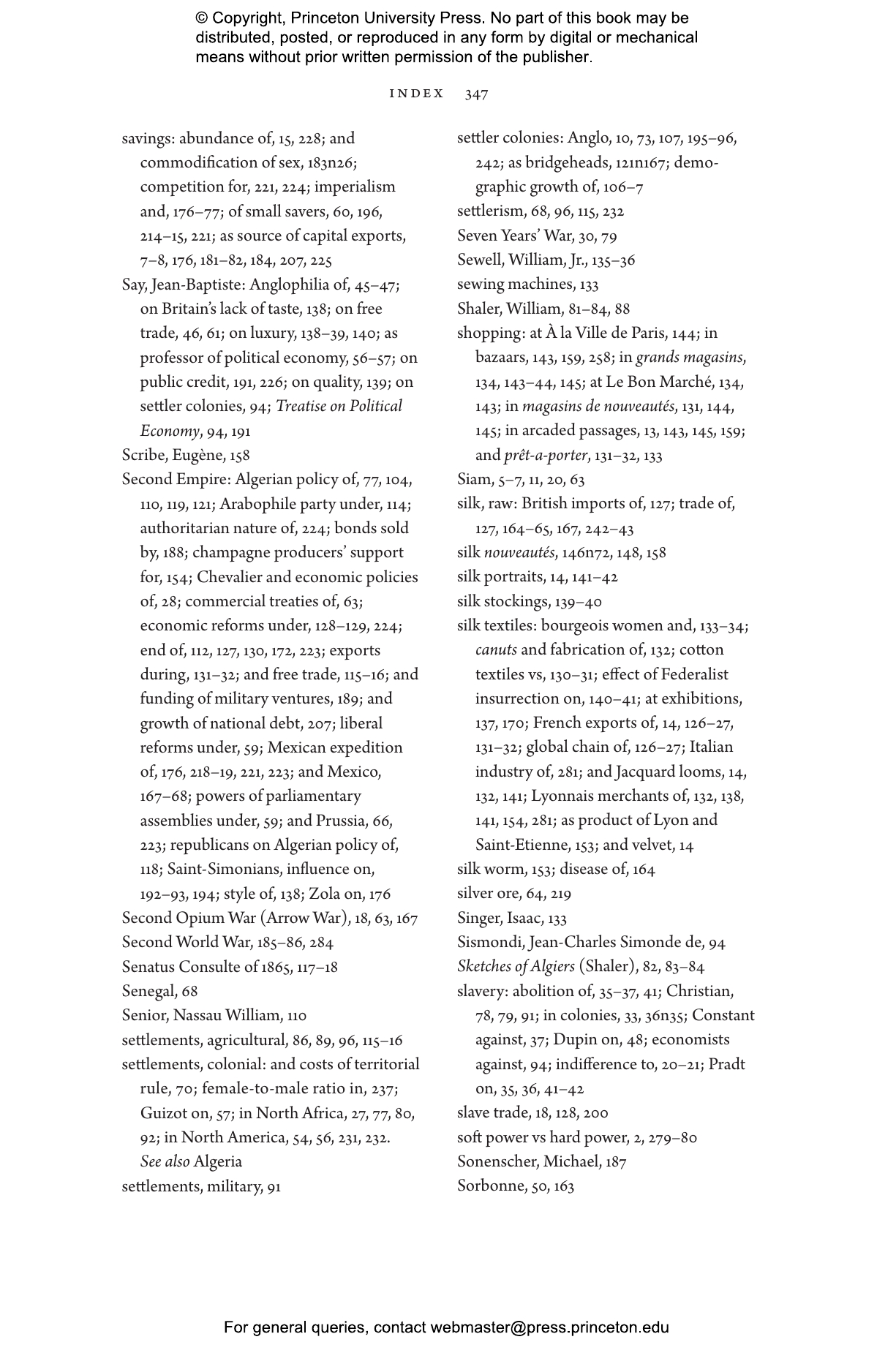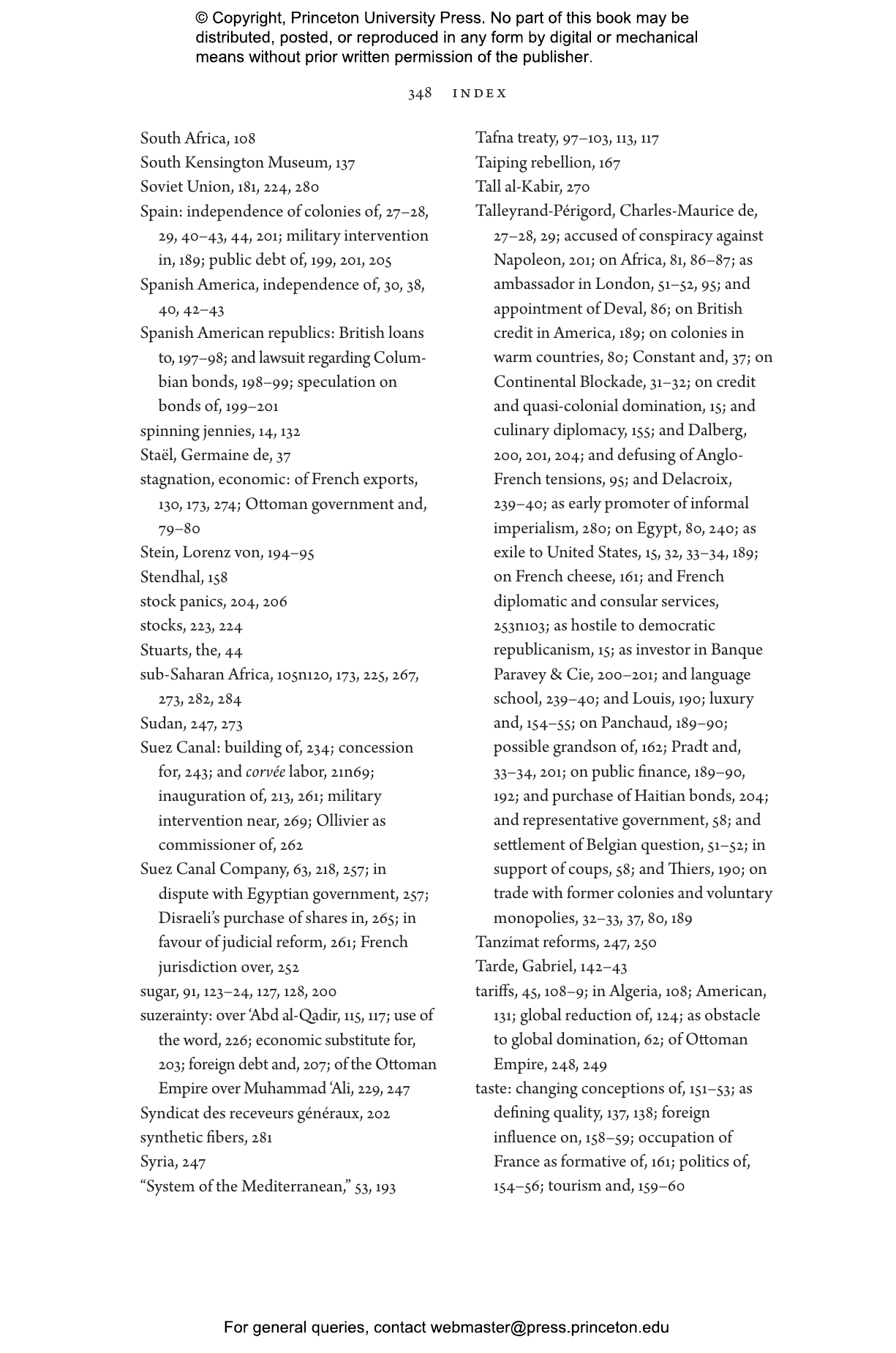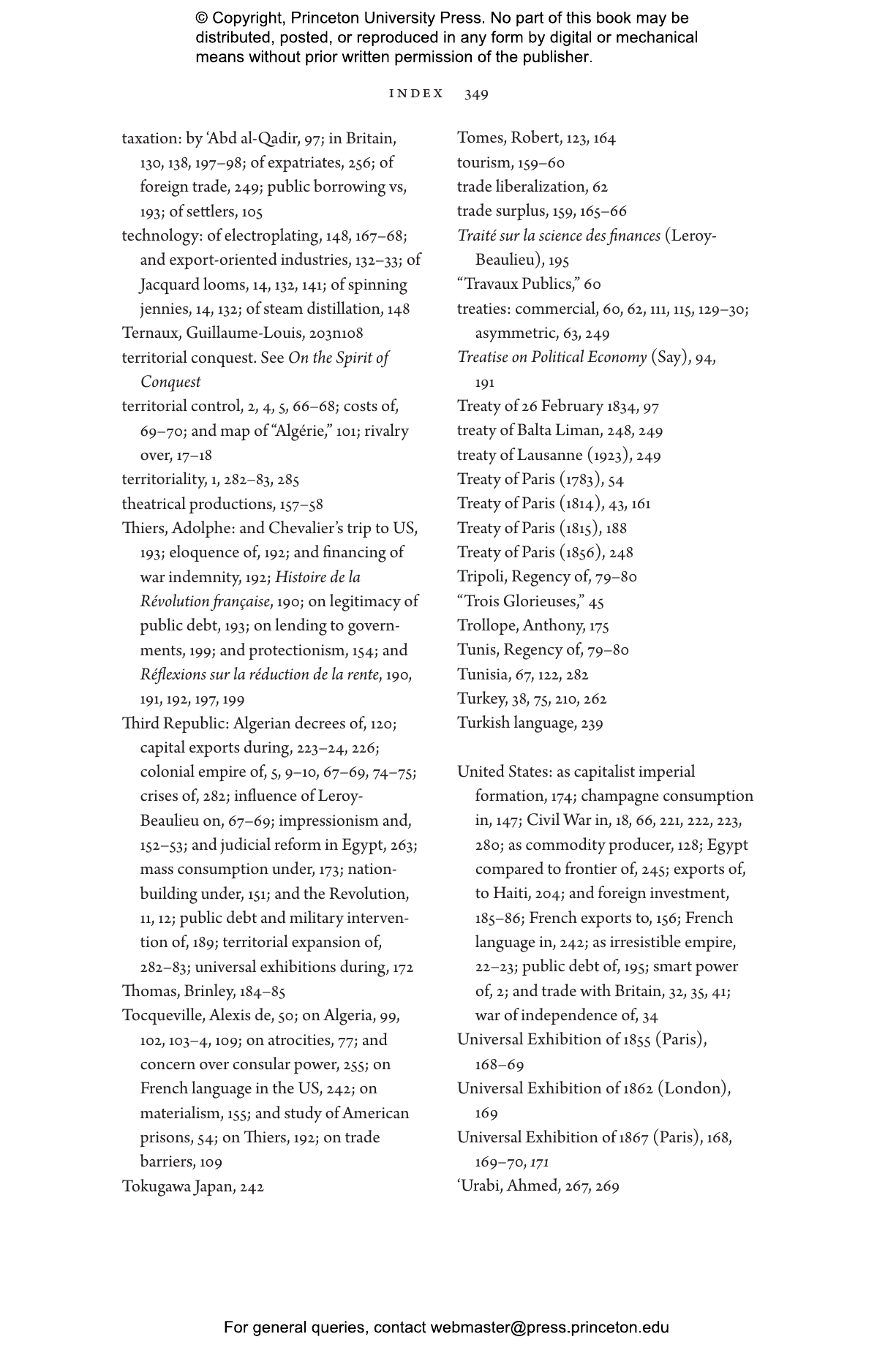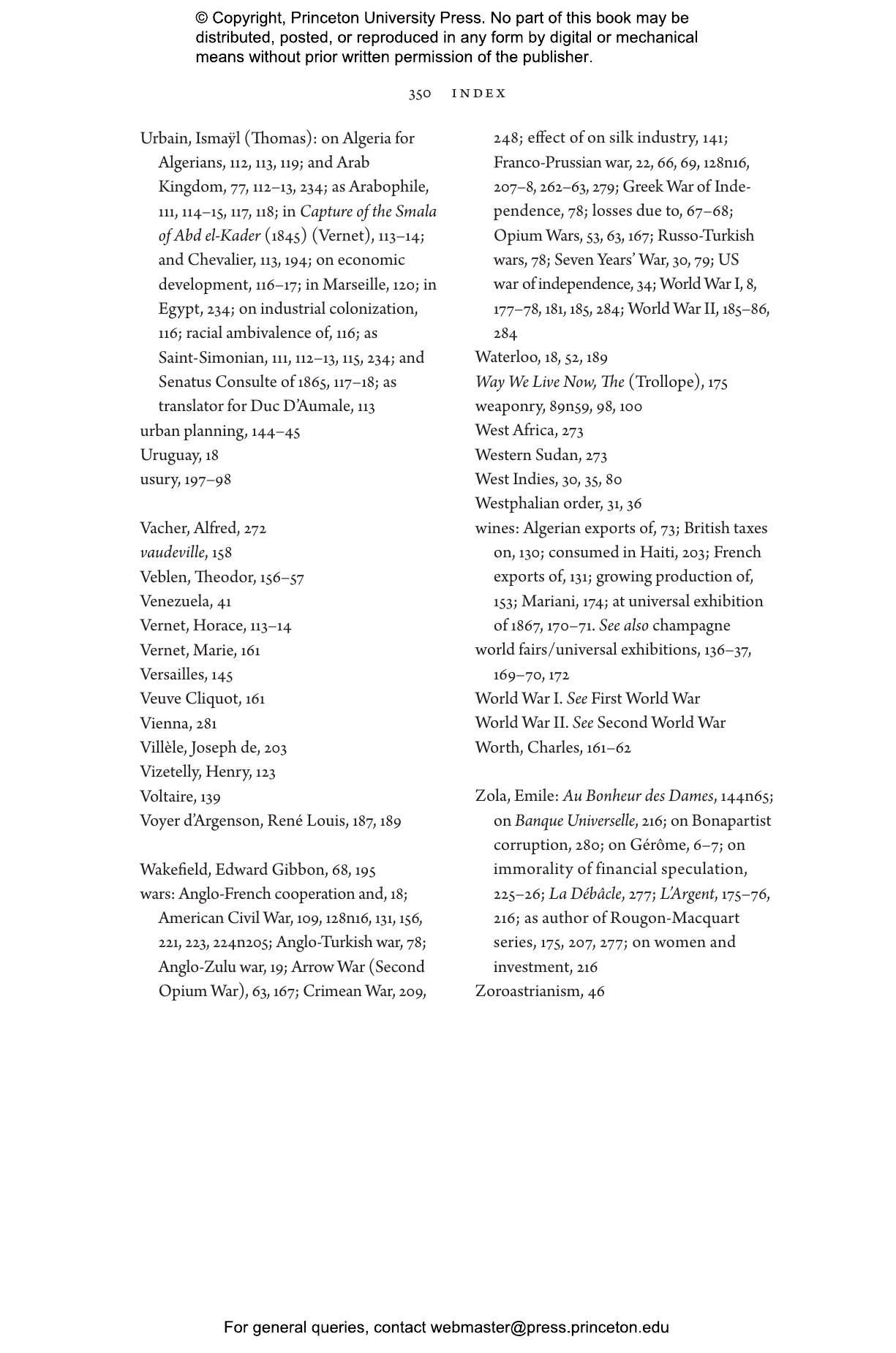After Napoleon’s downfall in 1815, France embraced a mostly informal style of empire, one that emphasized economic and cultural influence rather than military conquest. A Velvet Empire is a global history of French imperialism in the nineteenth century, providing new insights into the mechanisms of imperial collaboration that extended France’s power from the Middle East to Latin America and ushered in the modern age of globalization.
David Todd shows how French elites pursued a cunning strategy of imperial expansion in which conspicuous commodities such as champagne and silk textiles, together with loans to client states, contributed to a global campaign of seduction. French imperialism was no less brutal than that of the British. But while Britain widened its imperial reach through settler colonialism and the acquisition of far-flung territories, France built a “velvet” empire backed by frequent military interventions and a broadening extraterritorial jurisdiction. Todd demonstrates how France drew vast benefits from these asymmetric, imperial-like relations until a succession of setbacks around the world brought about their unravelling in the 1870s.
A Velvet Empire sheds light on France’s neglected contribution to the conservative reinvention of modernity and offers a new interpretation of the resurgence of French colonialism on a global scale after 1880. This panoramic book also highlights the crucial role of collaboration among European empires during this period—including archrivals Britain and France—and cooperation with indigenous elites in facilitating imperial expansion and the globalization of capitalism.
Awards and Recognition
- A Choice Outstanding Academic Title of the Year
- Winner of the Gyorgy Ranki Prize, Economic History Association
"[A] necessary reappraisal of French imperialism, a velvet empire indeed."—Francis Ghiles, Arab Weekly
"Skillfully organized and enjoyable to read, A Velvet Empire is a must read for historians of modern France and 19th-century colonialism."—Choice Reviews
"A must-read for general readers and scholars interested in the evolution of French imperialism in the XIX century."—Giampaolo Conte, The Journal of European Economic History
"A Velvet Empire makes a compelling case for informal empire as a core principle of French global expansion in the mid-nineteenth century . . . It situates an understudied period, long seen as an outlier, within the imperial longue durée, and its deft analysis of the interrelationship between foreign policy, economic actors, and culture will offer a useful road map for scholars exploring similar questions from different perspectives."—Maureen DeNino, Nineteenth-Century French Studies
"Todd has pulled off a tour de force by producing a challenging and thought-provoking study."—Samir Saul, H-Diplo
"Wide-ranging. . . . [A Velvet Empire’s] originality lies in its skillful weaving together of economic, political, and cultural history to illustrate how banking practices and commercial growth shaped and were shaped by foreign policy."—Miranda Spieler, H-Diplo
"David Todd is no apologist for past historical fashions; nor is A Velvet Empire an intellectual throwback. Quite the reverse: the singular achievement of this superb book is to demonstrate the continuing salience of informal empire as an explanatory mechanism for imperialist reasoning and gathering colonial influence from the late eighteenth century to the start of the twentieth. . . . [A Velvet Empire] throws new light on the pernicious infectivity of imperial influence and the benefits of keeping it hidden."—Martin C. Thomas, H-Diplo
"Challenging the conventional wisdom about empire in the nineteenth century, Todd shows that France engaged not only in conquest—as in Algeria—but in forging commercial relationships with elites in different parts of the world, proving as adept at 'informal empire' as Great Britain. Todd's arguments deserve a wide audience."—Frederick Cooper, author of Citizenship, Inequality, and Difference
"Todd invites us to integrate France more decisively into the study of globalization in the nineteenth century, and to take into account its contribution to modern capitalism. This innovative work enriches our apprehension of the multiple possible forms of imperialism."—Quentin Deluermoz, Université Sorbonne Paris Nord
"In this impressive and important book, David Todd breathes much-needed life into classic questions about the politics and economics of globalization. Taking cultural forms as seriously as gunboats, he fundamentally recasts our understanding of the nineteenth century while opening new directions in the study of modern imperial and European history."—Alexia Yates, University of Manchester
